
Travel Vaccines and Advice for Kenya

Kenya is an amazing country to experience wildlife and to take in a gorgeous and diverse landscape. You can find everything from equatorial glaciers to tall mountains to extensive plains.
Many who visit Kenya opt to go on a safari, where they catch glimpses of animals like rhinos, elephants and lions. Hikers will find adventure with Mount Kenya, an impressive peak which offers both day hikes and more ambitious excursions.
Kenya has beautiful beaches that are welcoming to travelers looking for relaxation or to participate in water sports, including diving and snorkeling.
Culturally, Kenya also boasts impressive diversity, with more than 40 different ethnic groups with their own unique traditions.
Do I Need Vaccines for Kenya?
Yes, some vaccines are recommended or required for Kenya. The CDC and WHO recommend the following vaccinations for Kenya: typhoid , cholera , hepatitis A , polio , yellow fever , chikungunya , rabies , hepatitis B , meningitis , influenza , COVID-19 , pneumonia , chickenpox , shingles , Tdap (tetanus, diphtheria and pertussis) and measles, mumps and rubella (MMR) .
See the bullets below to learn more about some of these key immunizations:
- Typhoid – Food & Water – Recommended for travelers to most regions.
- Cholera – Food & Water – Widespread transmission has been reported in some parts of Kenya. Vaccination is recommended for travel to rural areas or places where transmission is present.
- Hepatitis A – Food & Water – Recommended for most travelers.
- Polio – Food & Water – Generally considered a routine vaccination for most travel itineraries. Single adult booster recommended.
- Yellow Fever – Mosquito – Required if traveling from a region with yellow fever. Recommended for all travelers over 9 months of age, except if traveling to: North Eastern and Coast Province; Kilifi, Kwale, Lamu and Malindi states; and the cities of Mombasa and Nairobi
- Chikungunya – Mosquito – Few cases reported since 2016. Increased risk for those who may be in more rural areas.
- Rabies – Saliva of Infected Animals – High risk country. Vaccine recommended for long-term travelers and those who may come in contact with animals.
- Hepatitis B – Blood & Body Fluids – Recommended for travelers to most regions.
- Meningitis – Airborne & Direct Contact – Located in the meningitis belt, vaccination is recommended during the dry season (Dec. – June)
- Influenza – Airborne – Vaccine components change annually.
- COVID-19 – Airborne – Recommended for travel to all regions, both foreign and domestic.
- Pneumonia – Airborne – Two vaccines given separately. All 65+ or immunocompromised should receive both.
- Chickenpox – Direct Contact & Airborne – Given to those unvaccinated that did not have chickenpox.
- Shingles – Direct Contact – Vaccine can still be given if you have had shingles.
- TDAP (Tetanus, Diphtheria & Pertussis) – Wounds & Airborne – Only one adult booster of pertussis required.
- Measles Mumps Rubella (MMR) – Various Vectors – Given to anyone unvaccinated and/or born after 1957. One time adult booster recommended.
See the table below for more information:
Specific Vaccine Information
- Typhoid – Typhoid fever, a bacterial infection caused by Salmonella Typhi, spreads through contaminated food and water sources. Vaccination is recommended for travelers and those at risk, along with maintaining good hygiene and food safety.
- Cholera – Cholera is an infectious disease caused by the bacterium Vibrio cholerae, characterized by severe diarrhea and dehydration. The cholera vaccine, administered orally, provides protection against this infection. It’s recommended for travelers to areas with high cholera prevalence and during outbreaks.
- Hepatitis A – Hepatitis A is a contagious liver infection caused by the hepatitis A virus, typically spread through ingestion of contaminated food or water, or close contact with an infected person. Symptoms include fatigue, stomach pain, and jaundice. The hepatitis A vaccine provides effective prevention against the virus. It is administered in a series of shots, usually starting in childhood, and is recommended for travel to areas with high infection rates.
- Polio – A highly contagious disease, polio is transmitted through fecal-oral contact and can result in paralysis. The cornerstone of polio prevention is vaccination. Vaccination stimulates the immune system, providing immunity and aiding in the worldwide mission to eradicate polio.
- Yellow Fever – Yellow fever, transmitted through mosquito bites, can lead to serious illness. Prevention is key. The yellow fever vaccine is a must for travelers visiting at-risk regions. The vaccine provides lifetime protection.
- Chikungunya – Chikungunya, transmitted through mosquito bites, can be prevented by avoiding mosquito-infested areas and use of repellents. Vaccination is considered the best form of protection.
- Rabies – Rabies is a lethal disease transmitted through the saliva of infected animals, and vaccination is the key to prevention. Pre-exposure vaccination is advised for individuals at risk, and immediate post-exposure vaccination is crucial if one encounters a potentially rabid animal.
- Hepatitis B – Hepatitis B is a serious liver infection caused by the hepatitis B virus, transmitted through blood, sexual contact, or from mother to child during birth. It can become chronic, leading to liver failure or cancer. The hepatitis B vaccine, given as a series of injections, effectively prevents this infection.
- Meningitis – Meningitis is inflammation of the membranes covering the brain and spinal cord due to viral or bacterial infections. The meningitis vaccine protects against infection that results from certain types of bacterial meningitis.
- Measles, Mumps, Rubella (MMR) – Measles, mumps, and rubella are viral infections that can spread through close contact and respiratory droplets. Vaccination is the most effective way to halt their transmission. The MMR vaccine, given in two doses, strengthens immunity, reducing the chances of contracting and spreading these diseases.
Yellow Fever In Kenya
Yellow fever vaccination is recommended for all regions except the following: Nairobi, North Eastern Province and Coast Province. If you are traveling from Kenya to another country, proof of yellow fever vaccination may be required for entry.
Malaria In Kenya
Antimalarials are recommended for travel to all areas under 8,200ft. in elevation. Malaria in Kenya is resistant to chloroquine.
To find out more about these vaccines, see our vaccinations page. Ready to travel safely? Book your appointment either call or book online now.
Other Ways to Stay Healthy In Kenya
Prevent bug bites in kenya.
Safeguard against bug bites by following CDC-recommended practices like donning long attire and using EPA-registered repellents like DEET or picaridin. Be mindful of bug activity times and bolster your sleeping space with nets and screens. In the event of bug bites, clean the area, resist itching, and use over-the-counter treatments to help with itching. Be sure to seek medical help for severe reactions.
Food and Water Safety In Kenya
Abroad, make wise food choices by familiarizing yourself with local cuisine and favoring established restaurants. Frequent handwashing is crucial, and it’s advisable to steer clear of street food, opting for thoroughly cooked options.
Altitude Sickness In Kenya
When ascending to high altitudes, beware of altitude sickness, which can cause headaches, nausea, and dizziness due to reduced oxygen levels. Preventive measures include gradual ascent, staying hydrated, and possibly using medications like acetazolamide. If symptoms appear, swift descent to lower elevations, rest, and medical evaluation are essential.
Infections To Be Aware Of In Kenya
- African Tick-Bite Fever – Prevent African Tick-Bite Fever (ATBF) by wearing protective clothing, applying insect repellent, and regularly inspecting for ticks. For added defense, discuss options with healthcare experts before planning trips to endemic areas.
- Crimean-Congo Hemorrhagic Fever – Crimean-Congo Hemorrhagic Fever, a severe viral illness, is primarily transmitted through ticks and can spread through contact with infected bodily fluids. Effective prevention strategies include tick bite prevention, strict infection control in healthcare settings, and ongoing research into the development of a vaccine to combat the disease’s transmission.
- Dengue – The CDC describes dengue fever as a viral disease transmitted by mosquitoes, presenting symptoms such as rash and joint pain. Prevention strategies focus on reducing mosquito exposure and breeding grounds. Treatment is supportive, emphasizing the importance of mosquito bite prevention.
- Leishmaniasis – Leishmaniasis, a parasitic disease carried by sand flies, poses a substantial health risk. Effective prevention includes protective measures like using insect repellents, wearing long clothing, and avoiding outdoor activities during sand fly peak hours.
- Marburg Hemorrhagic Fever – Marburg Hemorrhagic Fever (MHF) spreads through contact with infected animals and individuals, necessitating stringent protective measures. Safe burial practices, healthcare infection control, and community education are pivotal in reducing MHF transmission risks.
- Rift Valley Fever – To prevent Rift Valley Fever, vaccination of livestock is crucial, along with controlling mosquito populations and ensuring safe animal handling practices. Public health education plays a vital role in raising awareness about RVF risks.
- Schistosomiasis – Schistosomiasis is a waterborne disease caused by parasitic worms. Prevention includes avoiding activities in contaminated water and using protective measures like clothing. Recognizing symptoms early, such as fever and abdominal pain, and seeking medical assistance promptly can lead to timely diagnosis and intervention, reducing health risks.
Health Notices and Outbreaks In Kenya
- Polio – A polio outbreak occured in northeastern Kenya in July 2023. Vaccination is still recommended for travel to the country, especially travel to those areas.
Do I Need a Visa or Passport for Kenya?
U.S. citizens must have a visa to enter Kenya. Visitors should obtain their visa before arrival in the country.
Sources: Embassy of Kenya and U.S. State Department
Travelers must have a passport that is valid for at least three months past the intended date of departure.
What Is the Climate Like in Kenya?
Kenya is a warm and humid country with a tropical climate. It has two rainy seasons from March to May and October to December. The dry season falls between June and September and January to February. The most popular tourist destinations in Kenya are the coastal region, including Mombasa and Malindi, and the national parks and game reserves, such as Masai Mara and Amboseli.
Along the coast, temperatures are warm to hot throughout the year with average highs ranging from 80 to 90 degrees. The region experiences two rainy seasons, with the long rains typically occurring from April to June and the short rains from October to December. It is generally sunny and dry from January to March and from July to September.
In the national parks and game reserves, temperatures can vary depending on the altitude and location. The parks experience hot and dry weather during the day and cooler temperatures at night. The long rains occur from March to May, while the short rains fall from October to December. The dry season from June to September offers the best opportunities for wildlife viewing due to the reduced vegetation and animals gathering around water sources.
Is It Safe to Travel to Kenya?
The US government has issued a travel warning affecting travel to the border area between Somalia and Kenya due to threats by the terrorist group al-Shabaab. There is a risk of crime and terrorism throughout the country.
Travelers are advised to avoid large gatherings, as they are also prime sites for incidences of crime and terrorism.
Hundreds of people have died in terrorist attacks in Kenya since 2011. The State Department recommends travelers avoid travel to the following regions:
- Northeastern Kenya – Mandera, Wajir, Garissa
- Coastal Areas – Tana River, Lamu, Kilifi
- Nairobi – Eastleigh
Home invasions, burglaries, armed carjackings, muggings and kidnappings have turned violent or fatal. Travelers should be aware they can happen at any time. Matatus, privately-operated buses, are often targeted.
Forced marriages occur and sexual assaults are prevalent. Scams are also frequent in Kenya.
All travelers should be aware of the risks, particularly from terrorists.
Kenya’s Rules
Avoid an embarrassing stop, over 70% of travelers will have diarrhea., get protected with passport health’s travelers’ diarrhea kit .
In Kenya, penalties for drug possession, trafficking, and use are severe. There are also strict rules about the sale and consumption of alcohol and cigarettes. Penalties for public intoxication are severe. Smoking is only permitted in public in designated areas.
Travelers who wish to import a firearm must obtain a permit.
Consensual same-sex sexual activity is criminalized in Kenya. LGBT travelers may face harassment and discrimination.
Customs regulations for importing or exporting religious materials, antiquities, currency, wildlife products and other items are strict. Travelers wishing to import or export special items should review these policies.
Under the Kenya Wildlife Service, all tour and safari operators must carry insurance. Travelers should confirm any tour company they plan to use has insurance and should check the safety record of a company and observe all local or park regulations. Travelers should review banned wildlife items under Kenya’s Wildlife Act.
What Should I Pack for Kenya?
When packing for a trip to Kenya, it’s important to think about the weather and what you’ll be doing. Here are some things to remember:
- Pack lightweight and breathable clothing to stay cool in the heat. Also bring some warm clothes for cooler places.
- Bring comfortable shoes for walking on rough ground, and sandals for the beach.
- Remember to pack sunscreen, sunglasses, and a hat to protect yourself from the sun.
- Bring insect repellent to protect yourself from mosquitoes.
- Bring any medications you need, along with a basic first aid kit.
- Bring a travel adapter for your electronics, as Kenya has different power outlets.
- Bring cash, preferably in Kenya shillings, and credit cards.
- Bring a camera and binoculars to capture the wildlife and beautiful scenery.
- Bring respectful clothing, especially if you’re visiting religious sites or the countryside.
Remember to pack light but bring what you need to be comfortable and safe on your trip.
U.S. Embassy to Kenya
All Americans visiting Kenya should register online with the U.S. Department of State before departure. This will inform the office of your travel plans within the country and will allow them to reach out in the case of an emergency or evacuation.
Once in Kenya, here is the information for the U.S. Embassy:
U.S. Embassy Nairobi United Nations Avenue Gigiri, Nairobi, Kenya Phone: +(254) (20) 363-6451 Fax: +(254) (20) 363-6170
Visit the Embassy to Kenya website before departure to confirm correct contact details for the office.
Stay safe abroad with Passport Health. Call or book online now and start traveling safely today!
Customer Reviews
Passport health – travel vaccines for kenya.
On This Page: Do I Need Vaccines for Kenya? Is There Cholera in Kenya? Do I Need a Visa or Passport for Kenya? What Is the Climate Like in Kenya? Is It Safe to Travel to Kenya? Kenya’s Rules What Should I Pack for Kenya? U.S. Embassy to Kenya
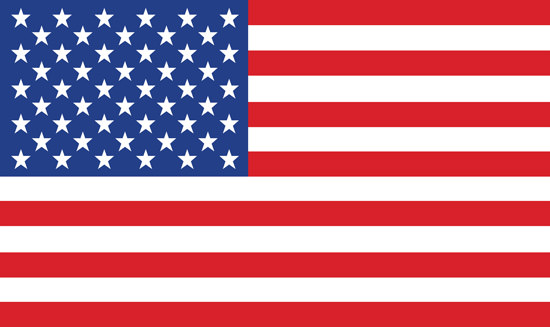
- Records Requests
- Passport Health App
- Privacy Center
- Online Store

Incoming Travellers
Arriving travellers, yellow fever vaccination certificate.
Health requirements for arriving travellers
Yellow fever vaccination certificate
Yellow fever requirements
All travelers arriving in Kenya from countries where yellow fever is endemic should present a valid yellow fever certificate. Yellow Fever Vaccination exemptions Infants aged less than 9 months, except during an epidemic when infants aged 6-9 months, in areas where the risk of infection is high, should also receive the vaccine. Pregnant women – except during a yellow fever outbreak when the risk of infection is high. People with severe allergies to egg protein. People with severe immunodeficiency due to symptomatic HIV/AIDS or other causes, or who have a thymus disorder.
State health requirements/WHO recommendations for yellow fever vaccination and malaria prophylaxis
COVID-19 Requirements
All travelers arriving into the country through any point of entry shall no longer be required to show proof of either COVID-19 vaccination; or a pre-departure COVID-19 test.
Only travellers arriving at any point of entry into Kenya with flu-like symptoms will be expected to fill the passenger locator form on the ‘jitenge’ platform. They will also be required to take a COVID-19 antigen test upon arrival at their own cost. Those who turn positive for the antigen testing will be required to take a further COVID-19 PCR test at their own cost. Those with severe symptoms shall thereafter be allowed to isolate as per the prevailing isolation requirements for mild, moderate and severe disease.
- Register here -> Jitenge platform
- See requirements here -> COVID-19 Travelling requirements
Back to Travellers Information
- Quick Links
- Make An Appointment
- Our Services
- Price Estimate
- Price Transparency
- Pay Your Bill
- Patient Experience
- Careers at UH
Schedule an appointment today

Kenya Travel Requirements & Vaccinations
Kenya is a country on the east coast of Africa. Officially known as the Republic of Kenya, it is named for Mount Kenya, the second-highest peak on the continent at 17,057 feet. Swahili and English are the two official languages of Kenya.
The landscape in Kenya is diverse, ranging from low plains and highlands to plateaus and valleys. The climate varies depending on location with tropical conditions prevailing along the coastline and dry, desert-like heat in the northern parts of the country. Daytime temperatures are warm year-round with significant cooling at night, especially inland and at higher elevations. The hottest months are February and March and the coolest are July and August. There are two rainy seasons in Kenya which occur from March to June, and then again from October to December. The rainfall can be heavy so travelers should be prepared if visiting the country during these months.
Kenya offers a vast selection of attractions and sightseeing opportunities, including:
- Safaris through national parks and game reserves
- The Serengeti Migration of the wildebeest, which is listed among the seven natural wonders of Africa
- Historical mosques and colonial-era forts
- Tea and coffee plantations
- Beaches along the Swahili Coast of the Indian Ocean
- Diverse populations of wildlife, reptiles and birds
Recommended Vaccinations for Travel to Kenya
- Hepatitis A
- Malaria (pill form)
- Yellow Fever
*Rabies vaccination is typically only recommended for very high risk travelers given that it is completely preventable if medical attention is received within 7 – 10 days of an animal bite.
Travelers may also be advised to ensure they have received the routine vaccinations listed below. Some adults may need to receive a booster for some of these diseases:
- Measles, mumps and rubella (MMR)
- Tdap (tetanus, diphtheria and pertussis)
Older adults or those with certain medical conditions may also want to ask about being vaccinated for shingles and/or pneumonia.
This information is not intended to replace the advice of a travel medicine professional. Not all of the vaccines listed here will be necessary for every individual.
Talk to the experts at UH Roe Green Center for Travel Medicine & Global Health to determine how each member of your family can obtain maximum protection against illness, disease and injury while traveling, based on age, health, medical history and travel itinerary.
Cookies on GOV.UK
We use some essential cookies to make this website work.
We’d like to set additional cookies to understand how you use GOV.UK, remember your settings and improve government services.
We also use cookies set by other sites to help us deliver content from their services.
You have accepted additional cookies. You can change your cookie settings at any time.
You have rejected additional cookies. You can change your cookie settings at any time.
- Passports, travel and living abroad
- Travel abroad
- Foreign travel advice
Before you travel check that:
- your destination can provide the healthcare you may need
- you have appropriate travel insurance for local treatment or unexpected medical evacuation
This is particularly important if you have a health condition or are pregnant.
Emergency medical number
Dial 999 and ask for an ambulance.
Contact your insurance company quickly if you’re referred to a medical facility for treatment.
Vaccinations and health risks
At least 8 weeks before your trip check:
- the latest information on vaccinations and health risks in TravelHealthPro’s Kenya guide
- where to get vaccines and whether you have to pay on the NHS travel vaccinations page
Altitude sickness is a risk in parts of Kenya. Read more about altitude sickness on TravelHealthPro .
The legal status and regulation of some medicines prescribed or bought in the UK can be different in other countries.
Read best practice when travelling with medicines on TravelHealthPro .
The NHS has information on whether you can take your medicine abroad .
Healthcare facilities in Kenya
FCDO has a list of English-speaking doctors in Kenya .
There is also guidance on healthcare if you’re living in Kenya .
COVID-19 healthcare in Kenya
The Kenya Civil Aviation Authority has information on COVID-19 testing facilities .
Travel and mental health
Read FCDO guidance on travel and mental health . There is also mental health guidance on TravelHealthPro .
Related content
Is this page useful.
- Yes this page is useful
- No this page is not useful
Help us improve GOV.UK
Don’t include personal or financial information like your National Insurance number or credit card details.
To help us improve GOV.UK, we’d like to know more about your visit today. We’ll send you a link to a feedback form. It will take only 2 minutes to fill in. Don’t worry we won’t send you spam or share your email address with anyone.
TOP DESTINATIONS
- Kruger Park
- Okavango Delta
- Serengeti National Park
- Victoria Falls
TOP COUNTRIES
- South Africa
TRAVEL DEALS
View All Travel Deals
SOUTHERN AFRICA
East africa, indian ocean islands, top experiences.
- Beach Holidays
- Family Safaris
- Honeymoon Safaris
- Desert Safaris
- Luxury Rail Safaris
- Multi-Generational Safaris
- Positive Impact Safaris
- Photographic Safaris
- Walking Safaris
WILDLIFE SAFARI
- Big Five Safaris
- Birding Safaris
- Gorilla Trekking Safaris
- Migration Safaris
- Mobile Camping Safaris
- Horseback Safaris
FEATURED EXPERIENCES
Comfort levels, property types.
- Tented Camps
- Boutique Hotels
Featured Safari Collections
- Time & Tide
- The Safari Collection
- Elewana Collection
- African Bush Camps
- Red Carnation
GET TO KNOW US
- Meet The Team
- Pricing Explained
- Traveller Reviews
- Traveller Stories
- Why Book With Us?
- HerdTracker
- Safari Cost Calculator
- South Africa In 360
- Trusted Safari Partners
What are you looking for?
- Safaris & Tours
- Destinations
- Experiences
- Accommodations
- Why book with us?
Hello traveller!
It's in Cape Town now.
We're sorry. Our safari planners aren't available now. Our office hours are 08:00 - 19:00 (GMT+2).
Call us to speak to an experienced safari planner.
Alternatively, we recommend...
Schedule a phone or Zoom call with one of our safari planners
Complete our travel enquiry form to connect with a safari planner
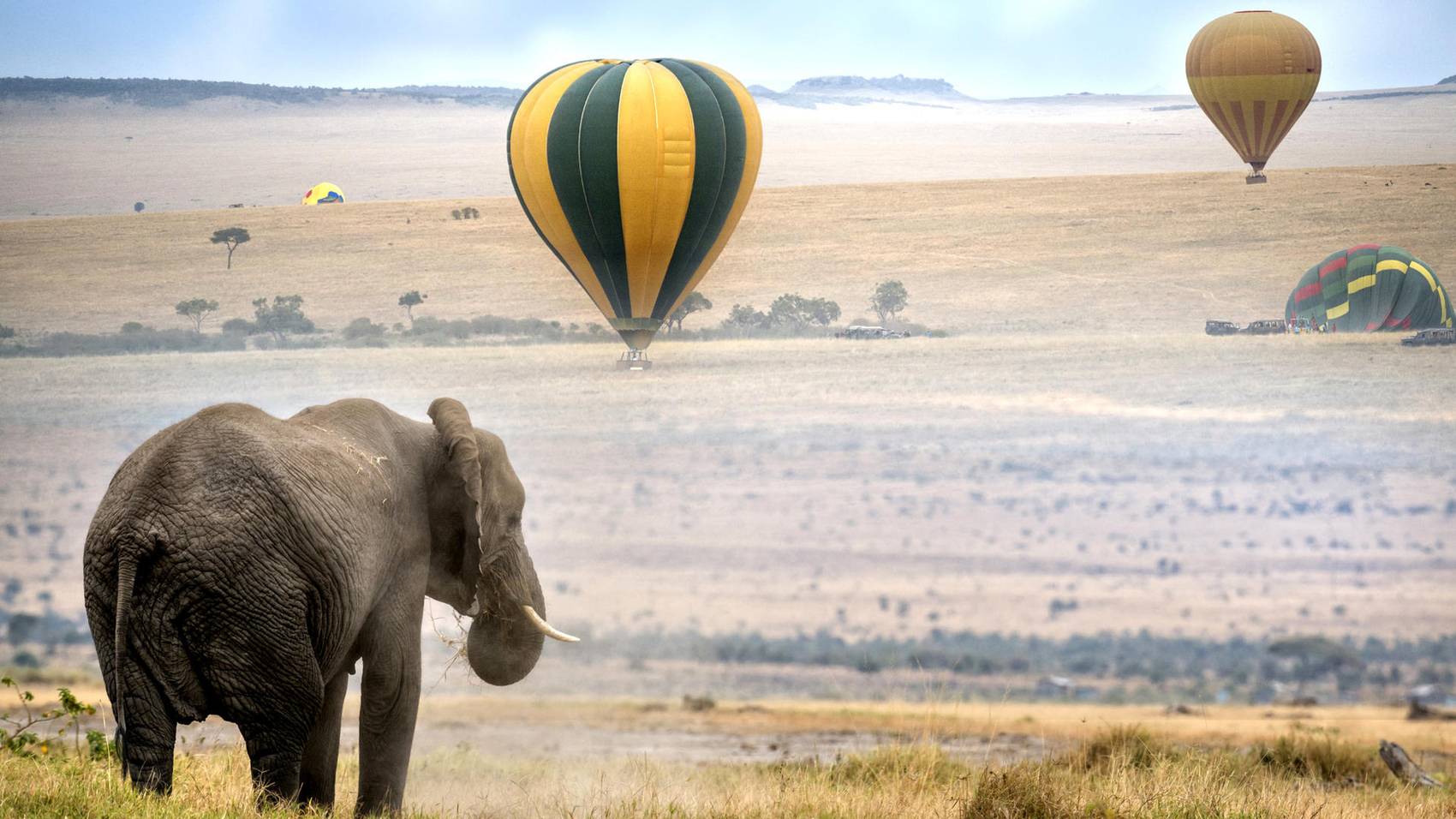
- What Vaccinations do I Need for Kenya?
Africa's best authentic tailor-made safaris

By Matthys van Aswegen
Safari Travel Planner
A yellow fever vaccination and certificate is not mandatory for those entering Kenya from Europe or North America. You may be asked for one if you enter arrive from elsewhere in the yellow fever belt of Africa or South America.
It’s important to be up-to-date on tetanus, polio and diphtheria, and you might consider immunisation against hepatitis A and B, diphtheria, rabies, typhoid, cholera and tuberculosis.
How it Works
View our recommended safaris for inspiration and get ready to plan your dream safari
Contact us or fill out an enquiry form and one of our travel experts will help you tailor make your perfect safari
Enjoy an authentic African experience, with peace of mind
Travel with Confidence
With over 20 years of experience, our team will help you choose the perfect african safari for your adventure., 24/7 support, personalized, popular kenya safaris, these recommended tours for kenya can be tailor-made to match your budget..
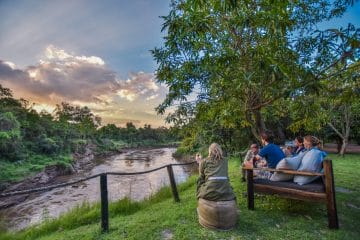
Amboseli Masai Mara and Victoria Falls Adventure
East Africa Kenya Maasai Mara Zimbabwe Victoria Falls
From $ 7100 /USD

Governors Camp Collection Safari
East Africa Kenya Lake Naivasha Lake Nakuru National Park Laikipia, Lewa and Ol Pejeta Conservancy Maasai Mara
From $ 11800 /USD

Affordable Masai Mara Safari
East Africa Kenya Maasai Mara
From $ 3050 /USD
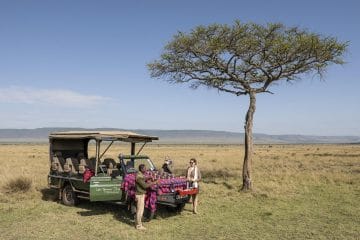
Migration River Crossings Safari with Governors...
From $ 4440 /USD
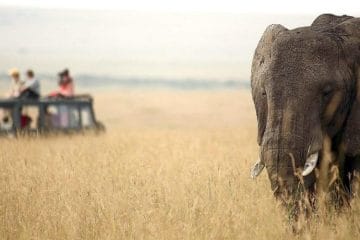
Masai Mara and Serengeti Combo
East Africa Kenya Maasai Mara Tanzania Serengeti
From $ 11850 /USD

Herdtracker Masai Mara Wildebeest Journey
From $ 6600 /USD

21 Kenya Safaris to choose from
Stay for 4 - 17 days
Experience our Tailor-made Tours in Kenya
Our recommended tours in kenya.

Enchanted Kenyan Safari
East Africa Kenya Chyulu Hills Maasai Mara
From $ 8900 /USD
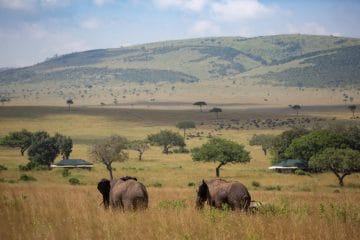
Highlights of Kenya Luxury Fly-In Safari
East Africa Kenya Nairobi Chyulu Hills Maasai Mara
From $ 10068 /USD
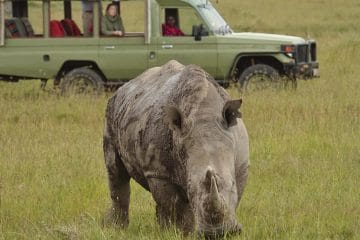
- Family Safari in Kenya
East Africa Kenya Laikipia, Lewa and Ol Pejeta Conservancy Maasai Mara
From $ 15300 /USD
Why travel with us?
Recent reviews from travellers who planned and booked their africa trips with discover africa safaris, many thanks adelle for your precious help.
Timbavati & Sabi Sands Safari Review
Donald, Canada 01 Nov 2022
Megan was right on top of everything and returned emails and calls....
Sabi Sabi Earth Lodge review
Vicki, United States 20 May 2022
Excellent communication, professional & helpful service with quick response times..
Botswana Five Day Adventure Review
Pete, Ireland 26 Apr 2019
The trip was put together in a very seamless way..
Serengeti Safari Review
Tony, United Kingdom 06 Feb 2018
Unbelievable experience..
South Africa, Zambia & Mozambique Honeymoon Review
Paul, United States 26 Jan 2017
A wonderful time in sa and botswana.
South Africa and Botswana Adventure
Gerry, United States 10 Jun 2016
Ready to plan your tailor-made safari.

Adelle Belle, Safari Travel Planner
Free safari planning advice from destination experts
- Kenya in January
- Kenya in February
- Kenya in March
- Kenya in April
- Kenya in May
- Kenya in June
- Kenya in July
- Kenya in August
- Kenya in September
- Kenya in October
- Kenya in November
- Kenya in December
- Amboseli National Park
- Laikipia Plateau
- Masai Mara National Reserve
- Mombasa and Surrounds
- Mount Kenya and Aberdares
- Northwest Safari Circuit
- Rift Valley Lakes
- Samburu Springs and Mount Meru National Park
- Southern Safari Circuit in Kenya
- The Coastal Belt
- Tsavo East and West
- Watamu and Malinda
- Camel safaris
- Walking safaris – short walks, 2 – 3 hours
- A Relaxed Safari Holiday in Kenya
- Adventure Holidays in Kenya
- An Active Holiday in Kenya
- Beach and Bush Safari Holidays in Kenya
- Big Five Safari Holidays in Kenya
- Birding Safari Holidays in Kenya
- Foodie Holidays in Kenya
- Kenya Honeymoon Safari
- Kenya Photographic Safari
- Malaria Free Holidays in Kenya
- Walking Safari Holidays in Kenya
- Couple Holiday in Kenya
- Solo Travelling Through Kenya
- Affordable Safari Holiday in Kenya
- Budget Safari Holiday in Kenya
- Luxury Safari Kenya
- Changing Money in Kenya
- Cultural Practices of Kenya
- Getting Around in Kenya
- Health Care in Kenya
- Highlights of Kenya
- Is Kenya Safe?
- Kenya Food and Tipping
- Kenya Visa Requirements and Fees
- Kenya vs South Africa
- Kenya vs Uganda
- Languages in Kenya
- Lodges in Kenya: The Do’s and Don’ts
- Medical Emergencies in Kenya
- Medical Insurance in Kenya
- Medical Requirements for Kenya
- Packing List for a Kenya Holiday
- Shopping in Kenya
- Travelling to Kenya
- Welcome to Kenya
- Wildlife in Kenya
- Kenya Safari
Registered Members of these Organizations
USEFUL LINKS
- African Safaris
- African Safari Tours
- African Safari Lodges
- Why Book with us?
- Content Collaborations
- Safari Cost Estimator Tool
- Wildebeest Migration
- Privacy Policy
- Website Terms of Use
POPULAR COUNTRIES
- View All Countries
- South Africa Safaris
- Botswana Safaris
- Kenya Safaris
- Tanzania Safaris
- Namibia Safaris
- Rwanda Safaris
- Uganda Safaris
- Zambia Safaris
- Zimbabwe Safaris
POPULAR DESTINATIONS
- View All Destinations
- Cape Town Holidays
- Kruger Safaris
- Victoria Falls Safaris
- Masai Mara Safaris
- Serengeti Safaris
- Etosha Safaris
- Chobe Safaris
- Okavango Delta Safaris
TRAVEL BLOGS
- Travel News Digest, 19 April: SA Airports Celebrated, Rhino Poaching Concerns, Cape Town ‘Big Six’ Appeal
- FastJet Adds Surcharge to Vic Falls Route
- A Seasonal Guide to Honeymoon Safaris in Africa
- A Family Safari Guide to Health and Wellness
- WTM Africa 2024: Increased Global Interest and Sustainable Tourism Focus
DISCOVER AFRICA SAFARIS
2nd floor, Tygervalley Chambers One, 27 Willie van Schoor Avenue, Bellville, Cape Town , 7530
14 things you need to know before traveling to Kenya

Nov 21, 2023 • 7 min read
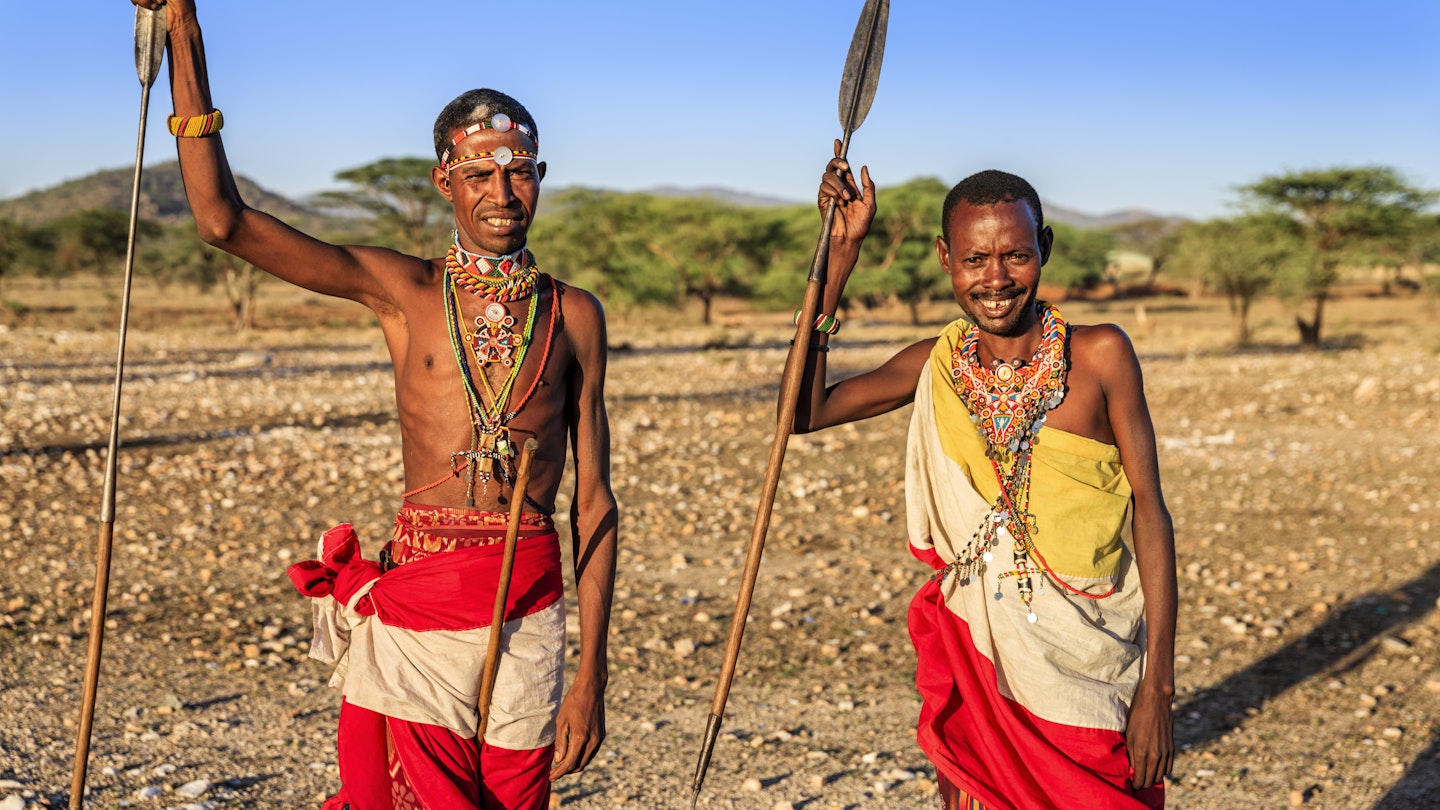
Make the most of your travel through Kenya with these practical tips © Bartosz Hadyniak / Getty Images
Think of Kenya and your mind instantly fills with exquisite scenes of safari jeeps and beautiful beaches lapped by the Indian Ocean.
But the incredible experiences stretch beyond Kenya's natural landscapes – Nairobi offers exciting urban and cultural encounters, too.
Here’s everything you need to know to make the most of a trip to this East African nation, from clothing and etiquette to safety and visas.
1. Check the visa requirements for Kenya
Many nationalities need to obtain a visa before departing for Kenya. Check the official visa website and allow time to complete your application. Random checks can mean extra questions for some travelers, even after submission and payment.
You won’t receive an email confirmation of your Kenya visa application or payment, so you need to log in to check its status. Once issued, print a color copy (or two) of the visa and payment and keep them on hand, even for domestic flights, such as between Nairobi and Mombasa.
The good news for citizens of African countries is visas for Kenya will be a thing of the past next year. The Kenyan President, William Ruto, recently announced that visa requirements will end for all African nations by the end of 2023.
Proof of a COVID-19 vaccination and a negative PCR test is no longer required to enter Kenya. However, travelers exhibiting flu-like symptoms will be required to take a PCR test and fill out a passenger locator form.
2. Pack smart for Kenya – it’s not always hot
Early morning safaris can be chilly, so it’s wise to take layers for a trip to Kenya. Similarly, temperatures can drop at night in the highlands. Fleeces and even windproof waterproofs are recommended.
On the other hand, staying cool is key by the coast or in the city. Pack cool, breathable fabrics and always cover up in the midday sun.
3. Leave your plastics at home
Kenya banned single-use plastic bags in 2017, so leave any carrier bags (and preferably single-use plastic water bottles and straws) at home. The bag ban is countrywide – luggage is often scanned, so don’t pack shoes or other items in plastic bags.
Single-use plastic bottles and straws are banned in national parks – bring a reusable water bottle from home.
4. Do you need malaria tablets for Kenya? Probably.
The risk of malaria is low in Nairobi, and in the highlands above 2500m (8200ft), but you should still avoid being bitten. The majority of Kenya falls into a malarial zone, so take advice on which antimalarial is best suited to you between atovaquone/proguanil, doxycycline or mefloquine.
Brand names you might be more familiar with include Malarone and Lariam, but check with your physician, pharmacy or travel clinic. Ideally do this a month in advance of your trip, as you may have to begin taking the pills some time before your trip begins.
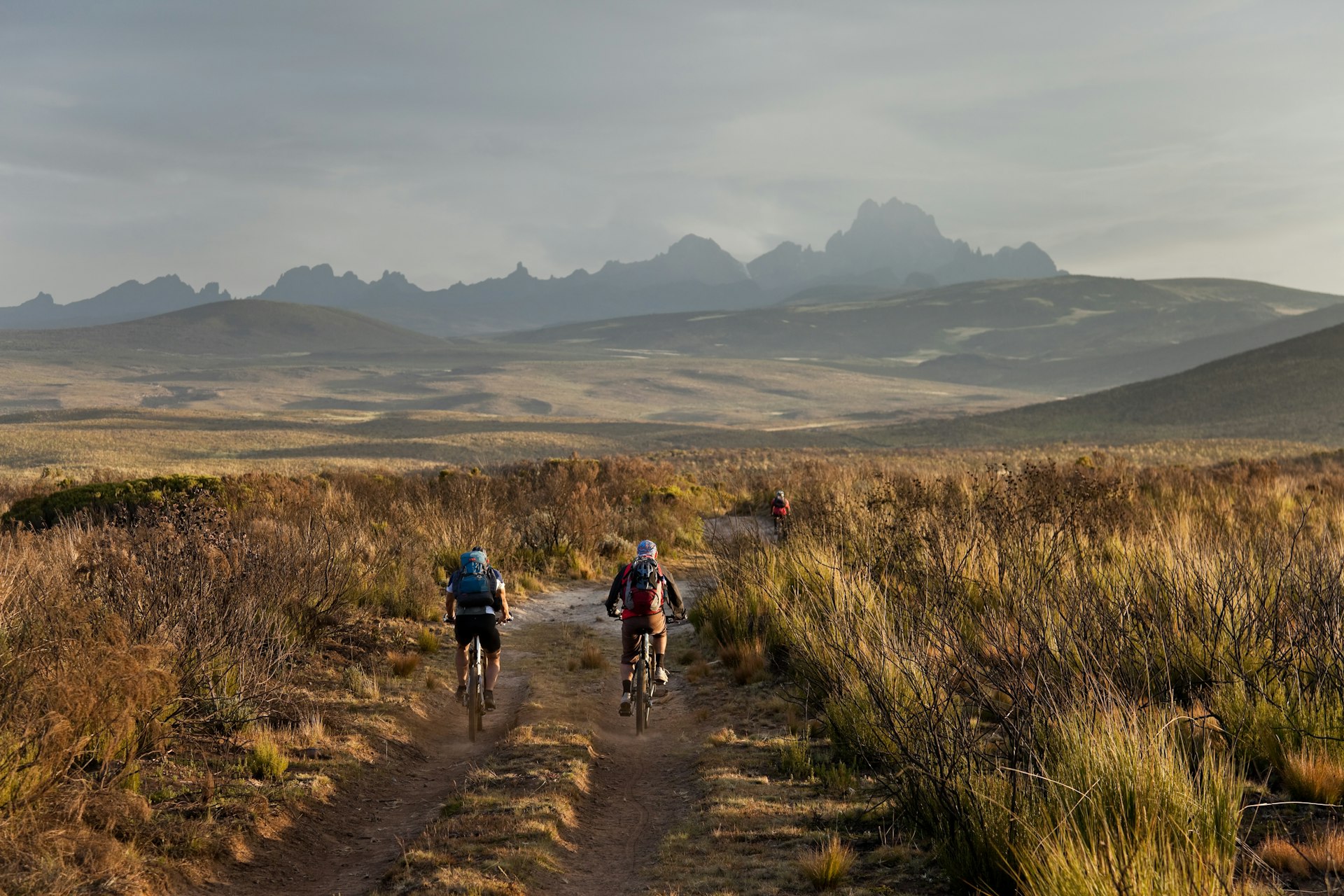
5. Greet people with “ mambo ” or “ niaje ”
“ Jambo ” is the best-known greeting in this fantastically friendly country, but if you want to show off your sheng (a Swahili and English combo originating among Nairobi’s younger population), try greeting people with “ mambo vipi .” The common reply is “ poa .” Alternatively, say “ niaje ,” to which someone will reply with “ niaje .”
6. Feel free to bargain, but don’t go too far
A sense of humor is essential when bargaining. It’s fine to offer a lower price in markets and some shops – many sellers will start with a higher price, and it can be fun to barter and meet in the middle.
Few sellers will accept an offer that's too low so have some fun with it – just bear in mind what you’re prepared to pay, be respectful and don’t over-haggle.
7. Leaving a tip goes down a treat
Tipping isn’t expected in Kenya, but if you’ve had a good meal or service, leaving around 10% is appreciated. In hotels, you can also tip porters and housekeeping staff. Some calculate it at Ksh100 to Ksh200 a day while others round it up at the end. Keep small change on you for tips and shopping in markets.
If you’re taking a taxi, round up to the nearest 100, but tips are not always necessary. Taxi apps are popular, and you can add a tip at the end of the journey through the app. Avoid giving money in exchange for preferential service.
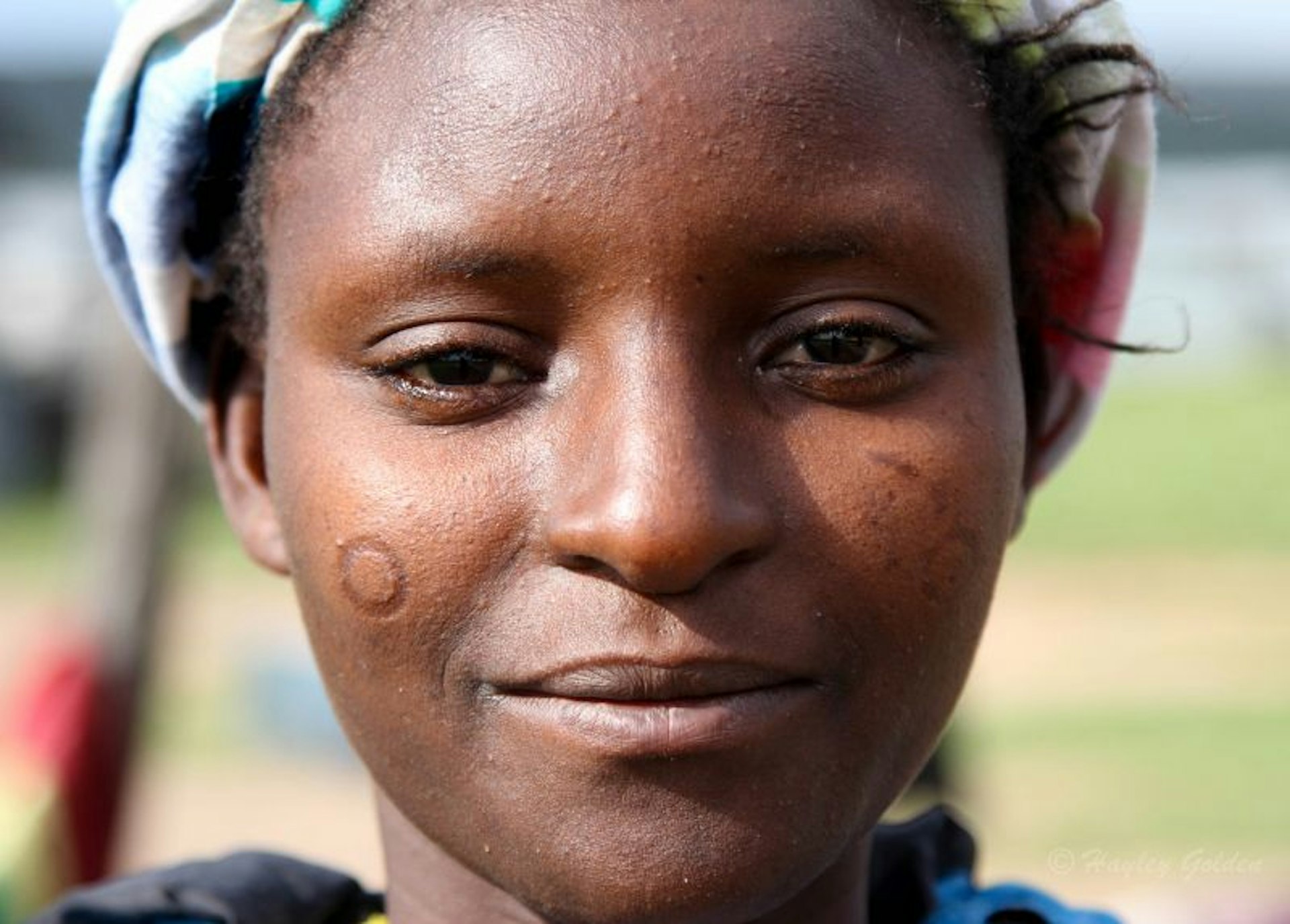
8. Be respectful of local communities
Never take photos of people without asking permission, particularly in rural areas and in Mombasa . If you want to publish any photos, even on social media, it’s respectful to carry a consent form and say “ asante ” (thank you).
Be particularly conscious around children or other vulnerable people. If you’re given the OK to take a photo, show it to them after you've taken it. Think twice before visiting a school (or anywhere that would be strange or inappropriate for you to go to in your home country).
Also note: anyone taking photos of infrastructure, airports and the military may come under suspicion.
9. Dress appropriately – but don’t overthink it
Kenya is moderately conservative, but that doesn’t mean you need to cover your shoulders and knees everywhere. In Nairobi, in towns and on safari, shorts, dresses and sleeveless tops are fine to wear, and the same goes for most beach resorts , although walking around in swimwear isn’t appropriate.
In Muslim communities such as Lamu Town, dressing more conservatively is advised. Loose clothing can be more comfortable in the heat.

10. Don’t rush – go with the flow
It’s misleading to suggest the whole of Kenya operates on some slower “Kenya time” – Nairobi can have the same pace and rhythm as any major city. But the heat and humidity of the coastal areas, around Mombasa, Malindi and Lamu for example, can mean life needs to be lived at a more relaxed pace.
Bear that in mind before expecting certain tasks and services to be carried out immediately, and instead, go with the flow and enjoy a pole pole (“slowly” in Swahili) way of life.
11. You can boil the tap water in Kenya and drink it
Tap water in Kenya isn’t off-limits. If you have the facilities, you can boil the tap water – it’s soft and sweet – and drink it once cooled.
Obviously, that's not always an option, in which case filtered water in restaurants and hotels is safe. You can buy plastic-bottled water, but it’s obviously a lot more ecofriendly to bring your own reusable bottle and water filter or tablets.

12. Pack a power bank
Power cuts in Kenya can occur (they’re usually not for long), so if you rely on your smartphone, take a power bank and ensure it’s always charged. Take a spare camera battery if you're going on safari – and a decent flashlight is helpful in case of power cuts but also when walking around the safari camp at night.
In addition to helping you navigate in low light, it will help you look out for insects and snakes. Headlamps are especially handy on a campsite for reading and for nighttime bathroom trips.
13. Don’t be scared by headlines, but know your geography
People often ask, “Is Kenya safe for tourists?” Few incidents involve tourists, especially in game reserves and tourist areas, but there are a few areas it's better to avoid.
These include but are not limited to, within 60km (37 miles) of the Kenya-Somalia border, Garissa County and Lamu County (excluding Lamu Island and Manda Island – travel by air if you're planning a visit).
Check the latest guidelines from your government before traveling. In Nairobi, as with any major city, keep valuables safe and your wits about you.
14. Keep embassy and consulate details to hand
Wherever you’re from, it’s savvy to know the contact details of your embassy or consulate. Take photos of your passport, visa and other documents, so you can access them on your phone or email.
Carry an original form of ID if possible. A driver's license is useful if you don’t want to carry your passport with you every day.
This article was first published March 2022 and updated November 2023
Explore related stories
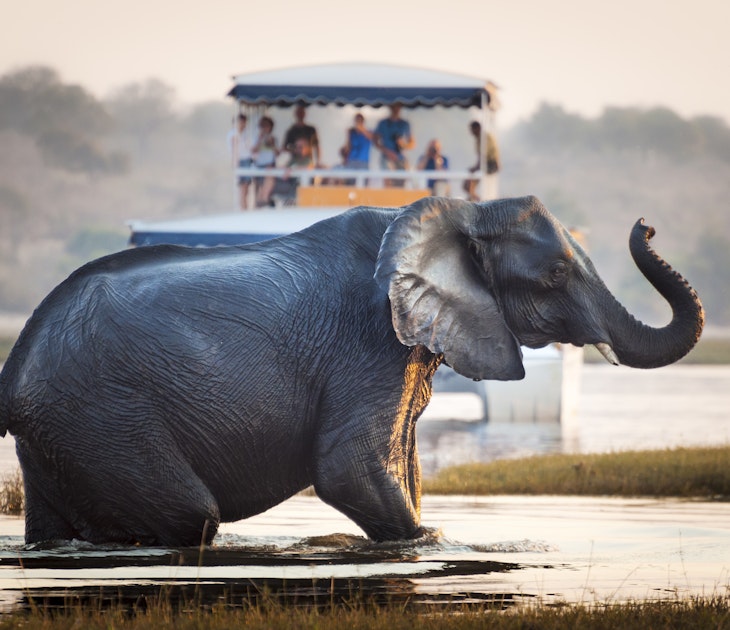
Wildlife & Nature
Feb 20, 2024 • 17 min read
If you’ve never been to Africa before, you’ve much to look forward to. But choosing where to go on your first safari is quite daunting. Here is our guide.
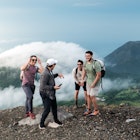
Jan 30, 2024 • 9 min read

Jan 5, 2024 • 20 min read
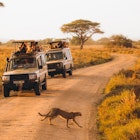
Dec 8, 2023 • 4 min read

Nov 30, 2023 • 9 min read

Nov 29, 2023 • 4 min read
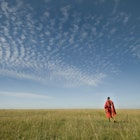
Nov 28, 2023 • 8 min read
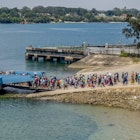
Nov 19, 2023 • 10 min read

Nov 17, 2023 • 7 min read
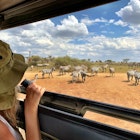
Nov 15, 2023 • 6 min read
- Skip to main content
- Skip to "About this site"
Language selection
Search travel.gc.ca.
Help us to improve our website. Take our survey !
COVID-19: travel health notice for all travellers
Kenya travel advice
Latest updates: The Health section was updated - travel health information (Public Health Agency of Canada)
Last updated: April 17, 2024 11:52 ET
On this page
Safety and security, entry and exit requirements, laws and culture, natural disasters and climate, kenya - exercise a high degree of caution.
Exercise a high degree of caution in Kenya due to the threat of terrorism and a high crime rate.
Border with Somalia - Avoid all travel
Avoid all travel to Mandera, Wajir, Garissa and Lamu counties bordering Somalia, due to a risk of kidnapping and attacks.
Border with South Sudan and Ethiopia - Avoid all travel
Avoid all travel to Turkana and Marsabit counties, within 110 km of the borders with South Sudan and Ethiopia, due to armed banditry and cross-border violence.
Regional advisory - Avoid all travel
- within 50 km of the coast of Tana River County
- within 50 km of the coast of Kilifi County (from north of the city of Malindi to the Tana River County limits)
Neighbourhoods of Nairobi - Avoid non-essential travel
Avoid non-essential travel to the neighbourhoods of Eastleigh, Kibera and Pangani, in Nairobi, due to the high crime rate.
Back to top
There is a threat of terrorism. Credible information indicates that foreigners may be targeted by extremists in the following areas:
- the coastal areas of Kenya
There is an increased risk of terrorist attacks in the following counties:
Terrorist attacks have occurred:
- in the coastal region, including in Mombasa and Malindi
- in the Mandera, Wajir and Garissa counties, near the border with Somalia
Foreigners have been targeted in some attacks. Further attacks cannot be ruled out.
Targets could include:
- government buildings, including schools
- places of worship
- airports and other transportation hubs and networks
- public areas such as tourist attractions, restaurants, bars, coffee shops, shopping centres, markets, hotels and other sites frequented by foreigners
Be particularly alert during religious holidays, sporting events and public celebrations. Terrorists have carried out attacks during these events.
- Always be aware of your surroundings when in public places
- Stay at hotels that have robust security measures, but keep in mind that even the most secure locations cannot be considered completely free of risk
Areas bordering Somalia and portion of the Coast region
Kenya’s border with Somalia is closed, but it is porous and Somali militias and bandit groups have carried out cross-border attacks against foreigners and humanitarian workers in this region. Some incidents involved the use of improvised explosive devices and have resulted in injuries and deaths, including at the Dadaab refugee camp, 80 km from the Somali border. The risk of such attacks in the region remains high.
Disputes between Somali clans also make the region unstable and dangerous. There is an increased military and police presence and frequent roadblocks due to the Government of Kenya’s efforts to limit Somali incursions and gun-running in the border area.
There is also an increased risk of kidnapping in the northeastern Kenyan counties of Mandera, Wajir and Garissa bordering Somalia and the coastal areas of Lamu County. Groups based in Somalia and northeastern Kenya have targeted humanitarian workers, tourists and residents in the past and deaths have occurred.
Beachfront accommodations on the coastal area are vulnerable to criminal activity, such as armed robbery, break-ins and carjacking.
Areas bordering South Sudan and Ethiopia
There is an extreme threat of kidnapping, terrorism and cross-border violence in the northern counties of Marsabit and Turkana within 110 km of Ethiopia and South Sudan.
Neighbourhoods of Nairobi
Criminal activity remains high in several neighbourhoods and areas of Nairobi. Police capacity to respond to crime and other incidents is very limited.
Northern and Western Kenya
Some areas located in Turkana, Marsabit, Isiolo, Wajir and Mandera counties are considered unsafe. The ongoing threat posed by terrorism is joined by various regional, tribal or clan-based conflicts involving land, cattle and water. Consider using armed escorts when travelling within these counties; escorts can often be arranged through local police stations.
- Avoid venturing away from tourist areas
- Do not travel after dark
Tribal conflicts have occurred in the Mount Elgon area in the western counties of Trans-Nzoia and Bungoma. If you decide to travel to that region:
- Remain vigilant at all times
- Monitor local media
There is a high crime rate in most regions of Kenya, particularly in major cities such as Nairobi, Mombasa and Kisumu, and at coastal beach resorts. Traditionally, crimes increase in the weeks before Christmas.
Be aware that there have been incidents of “mob justice” in which a crowd lynches suspected criminals prior to the arrival of police.
Violent Crime
Carjacking, home invasions, kidnappings and robberies occur, including during daylight hours and in neighbourhoods normally considered safe.
Tourists have been the target of carjacking, robberies and kidnappings while travelling to or from the international airports in Nairobi and Mombasa.
- Only use transportation organized by reputable tour companies or well-marked taxis
- Be particularly vigilant if you are commuting alone
In Nairobi, exercise extreme caution in informal settlement communities, such as Kasarani, Kibera and Mathare, due to the high level of crime and limited capacity of police to respond to incidents.
The Old Town of Fort Jesus in Mombasa has a similar crime rate to other areas of the city during the day. However, there is a greatly increased risk of criminal activity at night, including robberies, attacks and other street crimes. Crime rates are also high on and around the Likoni Ferry (which links Mombasa and the southern resorts).
- Be aware of your surroundings at all times, particularly on roads linking a city centre to residential areas
- Do not walk outdoors at night, particularly in isolated areas
- Exercise caution while walking during daylight hours and if travelling after dark
- When confronted by robbers, comply and do not offer resistance
Petty Crime
Petty crime, such as pickpocketing and purse snatching, occurs.
- Ensure that your belongings, including your passport and other travel documents, are secure at all times
- Avoid showing signs of affluence or carrying large sums of money
- Ensure that your credit and debit cards, cash and any other financial resources are not all kept in the same place
- Store your belongings in safekeeping facilities
- Never leave your bags unsupervised at a ticket office or a registration desk
- When you leave your hotel room, ensure that the door is locked and the “do not disturb” sign is displayed
Thieves travelling on scooters or on foot have targeted the bags of car or scooter passengers.
- Keep your windows closed, doors locked and valuables out of reach and sight
- Be especially vigilant when stopped at traffic lights
Incidents of passport theft have occurred in the departure area of Jomo Kenyatta International Airport in Nairobi. There have also been cases where checked luggage has been pilfered.
- Be aware of your surroundings at all airports
- Store your valuables in locked hand-luggage
- Do not exchange currency in the public areas of the airport
Demonstrations
Demonstrations take place regularly. Even peaceful demonstrations can turn violent at any time. They can also lead to disruptions to traffic and public transportation.
- Avoid areas where demonstrations and large gatherings are taking place
- Follow the instructions of local authorities
- Monitor local media for information on ongoing demonstrations
Mass gatherings (large-scale events)
Curfews can be imposed without notice.
Always comply with the directives issued by local authorities.
Power outages
Power outages occur regularly across the country. Blackouts may increase the risk of criminal activity in affected areas, which could in turn lead to opportunistic theft during prolonged outages.
Power outages could affect your ability to purchase basic necessisties and impact essential services, such as:
- public transportation, including flights
- medical services
- water supply
- telecommunications
Not all buildings are equipped with generators.
- Plan accordingly
- Keep a supply of water, food and fuel on hand
- Make sure you always have an emergency kit on hand
- Monitor local media for the latest updates
Spiked food and drinks
Never leave food or drinks unattended or in the care of strangers. Be wary of accepting snacks, beverages, gum or cigarettes from new acquaintances. These items may contain drugs that could put you at risk of sexual assault and robbery.
Criminals have been known to impersonate hotel employees, police officers or government officials in attempts to get money from tourists.
If you are approached by someone claiming to be a government official or police officer and they fine you for an alleged offence, ask for an official government receipt.
Police officers are required to identify themselves. There is a complaint process through the Kenyan Police Service to investigate allegations of corruption and abuse.
Exercise caution if you are travelling to Kenya to meet someone with whom you have developed a relationship on the Internet (friendship, business or romance). Foreigners are often lured to Kenya, especially during the holiday season (Christmas and New Year), to meet their online contact in person. Once there, they become victims of crime. Some have lost thousands of dollars and some have been arrested for failing to pay debts accrued locally or exorbitant bills racked up as a result of scams.
Overseas fraud
Non-governmental organizations
Foreigners volunteering with local non-governmental organizations (NGOs) have sometimes reported incidents of fraud, threats and mistreatment by local personnel.
If you are contemplating volunteering with NGOs in Kenya, you should contact the National Bureau of NGOs before making any commitment and before departing Canada, to confirm that the organization you wish to work with is legitimate. All NGOs in Kenya are required by law to be registered with the National Council of NGOs, a self-regulating, non-partisan body.
National Bureau of NGOs
Women’s safety
Women travelling alone may be subject to some forms of harassment and verbal abuse. Attacks involving sexual assault have occurred.
Advice for women travellers
Forced Marriages
Forced marriage affecting foreigners occur. It sometimes occurs without the affected person’s prior knowledge or consent.
General information and advice about forced marriage
Road travel
Road conditions and road safety can vary greatly throughout the country.
Major highways are generally in good condition but minor roads are poorly maintained. Drivers do not respect traffic laws, and drinking and driving is prevalent, especially at night.
Keep this in mind when planning travel by road, as driving at night can be risky. Excessive speeds, poorly maintained vehicles, poor lighting and inadequate signage pose hazards.
During the rainy season, some unpaved roads become impassable, even with four-wheel drive vehicles. You should drive defensively and always be aware of your surroundings.
Serious traffic delays are common. The road from Nairobi to Mombasa is particularly congested and can be dangerous for tourists unfamiliar with local driving conditions. You should travel by air or train if possible.
Use authorized border crossings when travelling by vehicle between Kenya and Tanzania.
Overland travel
Visitors travelling overland to certain game parks and reserves have been attacked by armed bandits. Exercise caution on the roads between the following regions due to attacks, robberies and vehicle hijackings:
- Malindi to Lamu
- Nairobi and the Amboseli, Masai Mara, Nakuru and Tsavo game parks/reserves
- Nairobi and the Mount Kenya/Aberdare area
Public transportation
Public transportation is unsafe.
Inter city buses
Long-distance buses have been involved in serious accidents.
Intra City travel
Local mini buses (matatus) and motorbike taxis (boda-bodas) are generally poorly maintained, recklessly driven and not adequately insured. Matatu hijackings and incidents of passengers being robbed have occurred.
Use reliable taxi companies, and confirm the fare in advance.
The Madaraka Express Railway line between Nairobi and Mombasa is reliable and safe. Other passenger train lines are not safe and are routinely late.
Local assistance
The Kenya Tourism Federation operates a 24-hour Safety and Communication Centre, which provides information on tourism and road conditions, and has information about regional assistance in an emergency.
Safety Centre - Kenya Tourism Federation
National parks, safaris and reserves
Tourists have been victims of crime, sometimes involving violence, in national parks and reserves, as well as on safaris.
- Remain aware of your surroundings at all times
- Avoid camping alone or without expert local assistance
Wildlife viewing
Wildlife viewing poses risks, particularly on foot or at close range.
- Always maintain a safe distance when observing wildlife
- Only exit a vehicle when a professional guide or warden says it’s safe to do so
- Only use reputable and professional guides or tour operators
- Closely follow park regulations and wardens’ advice
Maritime transportation
The Likoni Ferry (from Mombasa to Likoni) is unsafe due to a combination of high crime rates, uncontrolled crowds, limited safety training, frequent breakdowns and inconsistent maintenance. Stampedes and overcrowding on the ferry have resulted in multiple injuries.
Pirate attacks and armed robbery against ships occur in coastal waters. Mariners should take appropriate precautions.
Live piracy report - International Maritime Bureau
We do not make assessments on the compliance of foreign domestic airlines with international safety standards.
Information about foreign domestic airlines
Every country or territory decides who can enter or exit through its borders. The Government of Canada cannot intervene on your behalf if you do not meet your destination’s entry or exit requirements.
We have obtained the information on this page from Kenyan authorities. It can, however, change at any time.
Verify this information with the Foreign Representatives in Canada .
Entry requirements vary depending on the type of passport you use for travel.
Before you travel, check with your transportation company about passport requirements. Its rules on passport validity may be more stringent than the country’s entry rules.
Regular Canadian passport
Your passport must be valid for at least six months from the date of entry into Kenya.

Passport for official travel
Different entry rules may apply.
Official travel
Passport with “X” gender identifier
While the Government of Canada issues passports with an “X” gender identifier, it cannot guarantee your entry or transit through other countries. You might face entry restrictions in countries that do not recognize the “X” gender identifier. Before you leave, check with the closest foreign representative for your destination.
Other travel documents
Different entry rules may apply when travelling with a temporary passport or an emergency travel document. Before you leave, check with the closest foreign representative for your destination.
Useful links
- Foreign Representatives in Canada
- Canadian passports
Tourist visa: not required Transit visa: not required if you have a connecting flight and are not leaving the airport Business visa: required Student visa: required Work Permit: required
As of January 1, 2024, tourists are required to apply and pay for an Electronic Travel Authorization (eTA) prior to their travel. You can still use issued valid tourist visas until they expire.
You must obtain your visa or eTA online prior to your departure. Be sure to check the visa validity immediately after issuance.
If you don’t have a valid visa, you could be detained, taken to court and charged for being in Kenya illegally. You could be subject to a fine or deportation.
Useful links :
Apply for an eTA – Government of Kenya Kenyan Civil Aviation Authority – Government of Kenya eVisa – Kenyan Department of Immigration Services
Visa extension
Kenyan Immigration authorities may extend your visa for one month at a time, for a maximum of three months. Each extension costs KSH 1000, and must be requested while the visa is still valid.
To extend your visa, contact immigration authorities once you are in the country.
You must pay all visa fees in exact cash and only in U.S. dollars, British pound sterling or euros. You can’t pay for a visa with a credit card.
There is no fee for visas for children under 16 years.
East African tourist visa
The East African Tourist Visa allows for multiple entries to Kenya, Uganda, and Rwanda.
This visa is valid for 90 days and cannot be extended.
You must obtain this visa from the authorities of the country that is your first entry point. If you plan to begin your trip in Kenya, you must obtain it from the High Commission for the Republic of Kenya or on arrival.
Work Permits
You must have a valid work permit to work or volunteer in Kenya. It is illegal to work or volunteer in Kenya with any other type of visa.
As a foreign worker in Kenya, you must carry the necessary work permits and documentation with you at all times, even when volunteering. Strict actions will be taken if you don’t comply, including deportation.
To obtain an electronic working permit, apply online with the Department of Immigration Services. You must visit the Kenya Immigration headquarters (Nyayo House in the Central Business District of Nairobi) after completing the online application to obtain your permit.
Apply for a work permit - Kenyan Department of Immigration Services
NGO workers
Canadians planning to work or volunteer (including, temporarily or part-time) in Kenya for any period are required to have a work permit.
The National Council of NGOs can provide assistance in obtaining a work permit for individuals planning to work for a local NGO if contacted in advance.
If an employee moves from one organization to another, the first permit becomes void and the individual must apply for a new permit to work with the subsequent organization.
Consult with the NGO with whom you are planning to volunteer, as well as with the Kenya Immigration Foreign Nationals Services for full information and requirements.
More information about Kenyan work permits - High commission of Kenya
Children and travel
Learn more about travelling with children .
Yellow fever
Learn about potential entry requirements related to yellow fever (vaccines section).
The Kenyan authorities regularly carry out spot checks for proof of yellow fever vaccinations. Carry a copy of your proof of vaccination with you at all times.
Relevant Travel Health Notices
- Global Measles Notice - 13 March, 2024
- Zika virus: Advice for travellers - 31 August, 2023
- COVID-19 and International Travel - 13 March, 2024
- Polio: Advice for travellers - 17 April, 2024
This section contains information on possible health risks and restrictions regularly found or ongoing in the destination. Follow this advice to lower your risk of becoming ill while travelling. Not all risks are listed below.
Consult a health care professional or visit a travel health clinic preferably 6 weeks before you travel to get personalized health advice and recommendations.
Routine vaccines
Be sure that your routine vaccinations , as per your province or territory , are up-to-date before travelling, regardless of your destination.
Some of these vaccinations include measles-mumps-rubella (MMR), diphtheria, tetanus, pertussis, polio, varicella (chickenpox), influenza and others.
Pre-travel vaccines and medications
You may be at risk for preventable diseases while travelling in this destination. Talk to a travel health professional about which medications or vaccines may be right for you, based on your destination and itinerary.
Yellow fever is a disease caused by a flavivirus from the bite of an infected mosquito.
Travellers get vaccinated either because it is required to enter a country or because it is recommended for their protection.
- There is a risk of yellow fever in this country.
Country Entry Requirement*
- Proof of vaccination is required if you are coming from a country where yellow fever occurs.
Recommendation
- Vaccination is recommended depending on your itinerary.
- Contact a designated Yellow Fever Vaccination Centre well in advance of your trip to arrange for vaccination.
- Discuss travel plans, activities, and destinations with a health care professional.
- Protect yourself from mosquito bites .
About Yellow Fever
Yellow Fever Vaccination Centres in Canada * It is important to note that country entry requirements may not reflect your risk of yellow fever at your destination. It is recommended that you contact the nearest diplomatic or consular office of the destination(s) you will be visiting to verify any additional entry requirements.
There is a risk of hepatitis A in this destination. It is a disease of the liver. People can get hepatitis A if they ingest contaminated food or water, eat foods prepared by an infectious person, or if they have close physical contact (such as oral-anal sex) with an infectious person, although casual contact among people does not spread the virus.
Practise safe food and water precautions and wash your hands often. Vaccination is recommended for all travellers to areas where hepatitis A is present.
Measles is a highly contagious viral disease. It can spread quickly from person to person by direct contact and through droplets in the air.
Anyone who is not protected against measles is at risk of being infected with it when travelling internationally.
Regardless of where you are going, talk to a health care professional before travelling to make sure you are fully protected against measles.
Hepatitis B is a risk in every destination. It is a viral liver disease that is easily transmitted from one person to another through exposure to blood and body fluids containing the hepatitis B virus. Travellers who may be exposed to blood or other bodily fluids (e.g., through sexual contact, medical treatment, sharing needles, tattooing, acupuncture or occupational exposure) are at higher risk of getting hepatitis B.
Hepatitis B vaccination is recommended for all travellers. Prevent hepatitis B infection by practicing safe sex, only using new and sterile drug equipment, and only getting tattoos and piercings in settings that follow public health regulations and standards.
Coronavirus disease (COVID-19) is an infectious viral disease. It can spread from person to person by direct contact and through droplets in the air.
It is recommended that all eligible travellers complete a COVID-19 vaccine series along with any additional recommended doses in Canada before travelling. Evidence shows that vaccines are very effective at preventing severe illness, hospitalization and death from COVID-19. While vaccination provides better protection against serious illness, you may still be at risk of infection from the virus that causes COVID-19. Anyone who has not completed a vaccine series is at increased risk of being infected with the virus that causes COVID-19 and is at greater risk for severe disease when travelling internationally.
Before travelling, verify your destination’s COVID-19 vaccination entry/exit requirements. Regardless of where you are going, talk to a health care professional before travelling to make sure you are adequately protected against COVID-19.
The best way to protect yourself from seasonal influenza (flu) is to get vaccinated every year. Get the flu shot at least 2 weeks before travelling.
The flu occurs worldwide.
- In the Northern Hemisphere, the flu season usually runs from November to April.
- In the Southern Hemisphere, the flu season usually runs between April and October.
- In the tropics, there is flu activity year round.
The flu vaccine available in one hemisphere may only offer partial protection against the flu in the other hemisphere.
The flu virus spreads from person to person when they cough or sneeze or by touching objects and surfaces that have been contaminated with the virus. Clean your hands often and wear a mask if you have a fever or respiratory symptoms.
This destination is in the African Meningitis Belt, an area which has the highest rates of meningococcal disease in the world. Meningococcal disease is a serious and sometimes fatal infection.
Travellers who are at higher risk should discuss vaccination with a health care provider. High-risk travellers include those living or working with the local population (e.g., health care workers) or those travelling to crowded areas or taking part in large gatherings.
Malaria is a serious and sometimes fatal disease that is caused by parasites spread through the bites of mosquitoes. There is a risk of malaria in certain areas and/or during a certain time of year in this destination.
Antimalarial medication may be recommended depending on your itinerary and the time of year you are travelling. Consult a health care professional or visit a travel health clinic before travelling to discuss your options. It is recommended to do this 6 weeks before travel, however, it is still a good idea any time before leaving. Protect yourself from mosquito bites at all times: • Cover your skin and use an approved insect repellent on uncovered skin. • Exclude mosquitoes from your living area with screening and/or closed, well-sealed doors and windows. • Use insecticide-treated bed nets if mosquitoes cannot be excluded from your living area. • Wear permethrin-treated clothing. If you develop symptoms similar to malaria when you are travelling or up to a year after you return home, see a health care professional immediately. Tell them where you have been travelling or living.
In this destination, rabies is commonly carried by dogs and some wildlife, including bats. Rabies is a deadly disease that spreads to humans primarily through bites or scratches from an infected animal. While travelling, take precautions , including keeping your distance from animals (including free-roaming dogs), and closely supervising children.
If you are bitten or scratched by a dog or other animal while travelling, immediately wash the wound with soap and clean water and see a health care professional. In this destination, rabies treatment may be limited or may not be available, therefore you may need to return to Canada for treatment.
Before travel, discuss rabies vaccination with a health care professional. It may be recommended for travellers who are at high risk of exposure (e.g., occupational risk such as veterinarians and wildlife workers, children, adventure travellers and spelunkers, and others in close contact with animals).
Polio (poliomyelitis) is an infectious disease that can be prevented by vaccination. It is caused by poliovirus type 1, 2 or 3. Circulating vaccine-derived poliovirus 2 (cVDPV2) is present in this country. Polio is spread from person to person and through contaminated food and water. Infection with the polio virus can cause paralysis and death in individuals of any age who are not immune.
Recommendations:
- Be sure that your polio vaccinations are up to date before travelling. Polio is part of the routine vaccine schedule for children in Canada.
- One booster dose of the polio vaccine is recommended as an adult .
Safe food and water precautions
Many illnesses can be caused by eating food or drinking beverages contaminated by bacteria, parasites, toxins, or viruses, or by swimming or bathing in contaminated water.
- Learn more about food and water precautions to take to avoid getting sick by visiting our eat and drink safely abroad page. Remember: Boil it, cook it, peel it, or leave it!
- Avoid getting water into your eyes, mouth or nose when swimming or participating in activities in freshwater (streams, canals, lakes), particularly after flooding or heavy rain. Water may look clean but could still be polluted or contaminated.
- Avoid inhaling or swallowing water while bathing, showering, or swimming in pools or hot tubs.
Cholera is a risk in parts of this country. Most travellers are at very low risk.
To protect against cholera, all travellers should practise safe food and water precautions .
Travellers at higher risk of getting cholera include those:
- visiting, working or living in areas with limited access to safe food, water and proper sanitation
- visiting areas where outbreaks are occurring
Vaccination may be recommended for high-risk travellers, and should be discussed with a health care professional.
Travellers' diarrhea is the most common illness affecting travellers. It is spread from eating or drinking contaminated food or water.
Risk of developing travellers' diarrhea increases when travelling in regions with poor standards of hygiene and sanitation. Practise safe food and water precautions.
The most important treatment for travellers' diarrhea is rehydration (drinking lots of fluids). Carry oral rehydration salts when travelling.
Typhoid is a bacterial infection spread by contaminated food or water. Risk is higher among children, travellers going to rural areas, travellers visiting friends and relatives or those travelling for a long period of time.
Travellers visiting regions with a risk of typhoid, especially those exposed to places with poor sanitation, should speak to a health care professional about vaccination.
There is a risk of schistosomiasis in this destination. Schistosomiasis is a parasitic disease caused by tiny worms (blood flukes) which can be found in freshwater (lakes, rivers, ponds, and wetlands). The worms can break the skin, and their eggs can cause stomach pain, diarrhea, flu-like symptoms, or urinary problems. Schistosomiasis mostly affects underdeveloped and r ural communities, particularly agricultural and fishing communities.
Most travellers are at low risk. Travellers should avoid contact with untreated freshwater such as lakes, rivers, and ponds (e.g., swimming, bathing, wading, ingesting). There is no vaccine or medication available to prevent infection.
Insect bite prevention
Many diseases are spread by the bites of infected insects such as mosquitoes, ticks, fleas or flies. When travelling to areas where infected insects may be present:
- Use insect repellent (bug spray) on exposed skin
- Cover up with light-coloured, loose clothes made of tightly woven materials such as nylon or polyester
- Minimize exposure to insects
- Use mosquito netting when sleeping outdoors or in buildings that are not fully enclosed
To learn more about how you can reduce your risk of infection and disease caused by bites, both at home and abroad, visit our insect bite prevention page.
Find out what types of insects are present where you’re travelling, when they’re most active, and the symptoms of the diseases they spread.
There is a risk of chikungunya in this country. The risk may vary between regions of a country. Chikungunya is a virus spread through the bite of an infected mosquito. Chikungunya can cause a viral disease that typically causes fever and pain in the joints. In some cases, the joint pain can be severe and last for months or years.
Protect yourself from mosquito bites at all times. There is no vaccine available for chikungunya.
Rift Valley fever is a viral disease that can cause severe flu-like symptoms. In some cases, it can be fatal. It is spread to humans through contact with infected animal blood or tissues, from the bite of an infected mosquito, or eating or drinking unpasteurized dairy. Risk is generally low for most travellers. Protect yourself from insect bites and avoid animals, particularly livestock, and unpasteurized dairy. There is no vaccine available for Rift Valley fever.
Visceral leishmaniasis (or kala azar) affects the bone marrow and internal organs. It is caused by a parasite spread through the bite of a female sandfly. It can also be transmitted by blood transfusion or sharing contaminated needles. If left untreated it can cause death. Risk is generally low for most travellers. Protect yourself from sandfly bites, which typically occur after sunset in rural and forested areas and in some urban centres. There is no vaccine or medication to protect against leishmaniasis.
- In this country, dengue is a risk to travellers. It is a viral disease spread to humans by mosquito bites.
- Dengue can cause flu-like symptoms. In some cases, it can lead to severe dengue, which can be fatal.
- The level of risk of dengue changes seasonally, and varies from year to year. The level of risk also varies between regions in a country and can depend on the elevation in the region.
- Mosquitoes carrying dengue typically bite during the daytime, particularly around sunrise and sunset.
- Protect yourself from mosquito bites . There is no vaccine or medication that protects against dengue.
Zika virus is a risk in this country.
Zika virus is primarily spread through the bite of an infected mosquito. It can also be sexually transmitted. Zika virus can cause serious birth defects.
During your trip:
- Prevent mosquito bites at all times.
- Use condoms correctly or avoid sexual contact, particularly if you are pregnant.
If you are pregnant or planning a pregnancy, you should discuss the potential risks of travelling to this destination with your health care provider. You may choose to avoid or postpone travel.
For more information, see Zika virus: Pregnant or planning a pregnancy.
Animal precautions
Some infections, such as rabies and influenza, can be shared between humans and animals. Certain types of activities may increase your chance of contact with animals, such as travelling in rural or forested areas, camping, hiking, and visiting wet markets (places where live animals are slaughtered and sold) or caves.
Travellers are cautioned to avoid contact with animals, including dogs, livestock (pigs, cows), monkeys, snakes, rodents, birds, and bats, and to avoid eating undercooked wild game.
Closely supervise children, as they are more likely to come in contact with animals.
Anthrax is a serious infectious disease caused by bacteria. People can get sick with anthrax if they come into contact with infected animals or contaminated animal products. Anthrax can cause severe illness in both humans and animals. Travellers to areas where anthrax is common or where an outbreak is occurring in animals can get sick with anthrax if:
- they have contact with infected animal carcasses or eat meat from animals that were sick when slaughtered
- they handle animal parts, such as hides, wool or hair, or products made from those animal parts, such as animal hide drums.
If you are visiting these areas, do not eat raw or undercooked meat and avoid contact with livestock, wildlife, animal products, and animal carcasses.
Person-to-person infections
Stay home if you’re sick and practise proper cough and sneeze etiquette , which includes coughing or sneezing into a tissue or the bend of your arm, not your hand. Reduce your risk of colds, the flu and other illnesses by:
- washing your hands often
- avoiding or limiting the amount of time spent in closed spaces, crowded places, or at large-scale events (concerts, sporting events, rallies)
- avoiding close physical contact with people who may be showing symptoms of illness
Sexually transmitted infections (STIs) , HIV , and mpox are spread through blood and bodily fluids; use condoms, practise safe sex, and limit your number of sexual partners. Check with your local public health authority pre-travel to determine your eligibility for mpox vaccine.
Tuberculosis is an infection caused by bacteria and usually affects the lungs.
For most travellers the risk of tuberculosis is low.
Travellers who may be at high risk while travelling in regions with risk of tuberculosis should discuss pre- and post-travel options with a health care professional.
High-risk travellers include those visiting or working in prisons, refugee camps, homeless shelters, or hospitals, or travellers visiting friends and relatives.
HIV (Human Immunodeficiency Virus) is a virus that attacks and impairs the immune system, resulting in a chronic, progressive illness known as AIDS (Acquired Immunodeficiency Syndrome).
High risk activities include anything which puts you in contact with blood or body fluids, such as unprotected sex and exposure to unsterilized needles for medications or other substances (for example, steroids and drugs), tattooing, body-piercing or acupuncture.
Medical services and facilities
Good medical facilities are available in Nairobi, but health-care standards in other parts of the country vary and can be very limited. Medical facilities may require proof of insurance or up-front payment before starting treatment.
Make sure you get travel insurance that includes coverage for medical evacuation and hospital stays.
Travel health and safety
Keep in Mind...
The decision to travel is the sole responsibility of the traveller. The traveller is also responsible for his or her own personal safety.
Be prepared. Do not expect medical services to be the same as in Canada. Pack a travel health kit , especially if you will be travelling away from major city centres.
You must abide by local laws.
Learn about what you should do and how we can help if you are arrested or detained abroad .
Identification
You must carry photo identification or a copy of your passport at all times. Police and immigration officials have the right to demand proof of your identification, residency or valid visas. You should cooperate with authorities if you are asked for identification. Failure to present proof of residence or a valid visa to authorities when requested to do so could result in fines or arrest. Keep a photocopy of your passport in a safe place, in case it's lost or confiscated.
Volunteering
It is illegal to work or volunteer in Kenya without a valid work permit. Kenyan authorities strictly enforce this law. Convicted offenders could face heavy fines, jail sentences of up to five years and deportation.
Penalties for possession, use or trafficking of illegal drugs are severe. Convicted offenders can expect jail sentences ranging from 10 years to life imprisonment and heavy fines. You could also face fines and jail time if you are convicted of being in a location where there are illegal drugs, even if they are not yours.
There are strict restrictions on the sale of alcoholic beverages and on consuming alcohol in public places.
Drugs, alcohol and travel
Smoking is prohibited in all public places. Convicted offenders could pay heavy fines or face a jail sentence.
Possession of ivory or other banned wildlife items, even if purchased outside of Kenya, is strictly prohibited. Killing, buying, selling or trading any protected wild animal or any of its parts is illegal. Offenders can be arrested and given lengthy prison sentences and heavy fines.
Photography
Photography of government buildings, foreign embassies and missions (including the Canadian High Commission), airports, military facilities or other sensitive locations is prohibited and may lead to arrest or detention.
Illegal and restricted items
Plastic bags.
The use, manufacture or importation of plastic bags, including garbage bags and shopping bags, is illegal. Convicted offenders, including tourists, can face very heavy fines (up to USD 40,000), imprisonment for up to two years, or both.
Plastic bag ban
The recreational and commercial flying of drones is strictly regulated.
You must seek the permission from the Kenya Civil Aviation Authority prior to your arrival. If you don't comply, you may be fined and your drone may be confiscated.
Unmanned Aircraft Systems (Drones) - Kenya Civil Aviation Authority
To carry firearms, you must obtain permission from local authorities prior to entering the country. Firearms are strictly forbidden in wildlife reserves and national parks.
Pornographic material
Possession of pornographic material is forbidden.
2SLGBTQI+ travellers
Kenyan law prohibits sexual acts between individuals of the same sex. Those convicted can face lengthy prison sentences.
Even though there are few convictions, 2SLGBTQI+ persons are routinely harassed by the police, and societal discrimination based on sexual orientation is widespread.
2SLGBTQI+ travellers should carefully consider the risks of travelling to Kenya.
Travel and your sexual orientation, gender identity, gender expression and sex characteristics
Dual citizenship
Dual citizenship is legally recognized in Kenya.
If you are a Canadian citizen, but also a citizen of Kenya, our ability to offer you consular services may be limited while you're there. You may also be subject to different entry/exit requirements .
Travellers with dual citizenship
International Child Abduction
The Hague Convention on the Civil Aspects of International Child Abduction is an international treaty. It can help parents with the return of children who have been removed to or retained in certain countries in violation of custody rights. It does not apply between Canada and Kenya.
If your child was wrongfully taken to, or is being held in Kenya by an abducting parent:
- act as quickly as you can
- consult a lawyer in Canada and in Kenya to explore all the legal options for the return of your child
- report the situation to the nearest Canadian government office abroad or to the Vulnerable Children’s Consular Unit at Global Affairs Canada by calling the Emergency Watch and Response Centre.
If your child was removed from a country other than Canada, consult a lawyer to determine if The Hague Convention applies.
Be aware that Canadian consular officials cannot interfere in private legal matters or in another country’s judicial affairs.
- International Child Abduction: A Guidebook for Left-Behind Parents
- Travelling with children
- Canadian embassies and consulates by destination
- Emergency Watch and Response Centre
Traffic drives on the left.
While driving, drivers must always carry:
- a valid driver's licence
- vehicle registration documents
- proof of valid insurance
- a valid vehicle inspection certificate
These documents must be produced on demand by a police officer.
You must be at least 18 years old to drive a private motor vehicle in Kenya.
You may drive using a Canadian driver's licence for up to 90 days from the date of entry into Kenya.
An International Driving Permit is accepted, if presented with your original Canadian licence.
Residents of Kenya may apply for a Kenyan driver's licence with proof of a valid Canadian driver's licence.
If using a Canadian licence for any of the above cases, it must be in English or a certified translation must accompany it and be presented on demand.
Private motor vehicles must have 2 emergency triangles.
If you are stopped due to a traffic violation, the police officer may ask you to pay an on-the spot fine. Police, however, are not permitted to accept cash on the spot without issuing an official receipt. If you disagree with the traffic ticket, you have the right to ask for due process. The officer should provide you with information on when and where you can go to be properly charged, and then you may pursue that process.
International Driving Permit
Exercise common sense and discretion in your dress and behaviour, particularly in the coast region, where the majority of the population is Muslim.
To avoid offending local sensitivities:
- dress conservatively
- behave discreetly
- respect religious and social traditions
In 2025, the lunar month of Ramadan is expected to begin on or around February 28.
In public, between sunrise and sunset, be discreet when:
The currency is the Kenyan shilling (KES).
ATMs are widely available.
Credit cards are widely accepted at major hotels, but not always in more remote locations.
Many banks and hotels exchange foreign currency. It is also possible to convert Kenyan shillings into foreign currency at the airport upon departure.
M-PESA is a common form of electronic funds transfer accepted across Kenya, including at national parks. National parks do not accept cash and generally accept credit cards, but at times, due to technical difficulties, only payment via M-PESA is accepted.
Travellers who import the equivalent of U.S. $5,000 or more must provide documentation stating the source and purpose of the funds.
Rainy seasons and droughts
Drought is the most prevalent natural hazard in Kenya affecting mainly the eastern, north eastern and coast area, as well as parts of the Rift Valley.
There are normally two rainy seasons in Kenya: from October to November, and from late March to mid-June. Seasonal flooding and mudslides can hamper overland travel and reduce the provision of essential services. Roads may become impassable and bridges damaged.
If you reside in or are travelling to affected areas:
- exercise caution
- monitor local news and weather reports
- follow the advice of local authorities
Volcanoes and earthquakes
Natural disasters are possible due to regional volcanic and seismic activity. While there have not been any recent incidents, pay careful attention to all warnings issued.
Local services
There is no reliable centralized number to reach emergency services. Research and carry contact information for local police and medical facilities.
Consular assistance
For emergency consular assistance, call the High Commission of Canada in Kenya, in Nairobi, and follow the instructions. At any time, you may also contact the Emergency Watch and Response Centre in Ottawa.
Burundi, Rwanda, Somalia, South Sudan, Uganda
For emergency consular assistance, call the High Commission of Canada in Kenya, in Nairobi, and follow the instructions. At any time, you may also contact the Emergency Watch and Response Centre in Ottawa.
The decision to travel is your choice and you are responsible for your personal safety abroad. We take the safety and security of Canadians abroad very seriously and provide credible and timely information in our Travel Advice to enable you to make well-informed decisions regarding your travel abroad.
The content on this page is provided for information only. While we make every effort to give you correct information, it is provided on an "as is" basis without warranty of any kind, expressed or implied. The Government of Canada does not assume responsibility and will not be liable for any damages in connection to the information provided.
If you need consular assistance while abroad, we will make every effort to help you. However, there may be constraints that will limit the ability of the Government of Canada to provide services.
Learn more about consular services .
Risk Levels
take normal security precautions.
Take similar precautions to those you would take in Canada.
Exercise a high degree of caution
There are certain safety and security concerns or the situation could change quickly. Be very cautious at all times, monitor local media and follow the instructions of local authorities.
IMPORTANT: The two levels below are official Government of Canada Travel Advisories and are issued when the safety and security of Canadians travelling or living in the country or region may be at risk.
Avoid non-essential travel
Your safety and security could be at risk. You should think about your need to travel to this country, territory or region based on family or business requirements, knowledge of or familiarity with the region, and other factors. If you are already there, think about whether you really need to be there. If you do not need to be there, you should think about leaving.
Avoid all travel
You should not travel to this country, territory or region. Your personal safety and security are at great risk. If you are already there, you should think about leaving if it is safe to do so.
- Travel Clinic
- Health Checks & Blood Tests
- Family Health
- Sexual Health
- Aesthetic Clinics
- Occupational Health
- Pricing List
- Login / Register
- Online Booking

Find a Clinic
- MK test Home
- Travel vaccinations >
Travel Vaccinations for Kenya
Vaccinations, certificate requirements.
Yellow fever vaccination certificate required for travellers aged 1 year or over arriving from countries with risk of yellow fever transmission .
How much will it cost?
Recommended for all travellers.
The vaccines in this section are recommended for all travellers visiting the country.
Hepatitis A is a viral infection which causes an inflammation of the liver. In countries where hep A is prominent, many people catch it as a child. The infection tends to be mild in children but can occasionally cause complications. In adults, however, it can lead to liver damage or even liver failure. Although infection rates appear to be on the decrease, hepatitis A is endemic to Sri Lanka and the vaccination is recommended for all travellers.
The tetanus vaccine - or a booster - is recommended for all travellers who are planning to visit a country where access to medical assistance may be limited. You can get tetanus when tetanus bacteria get into your bloodstream, usually due to injury or a wound. You need a booster if your last tetanus jab was over ten years ago.
Like hepatitis A, typhoid fever is a food- and waterborne disease. It causes digestive problems such as diarrhoea or constipation, stomach pain and a high fever. The typhoid vaccination is recommended for all travellers visiting Sri Lanka, where outbreaks continue to occur. In addition to getting vaccinated you should take care in choosing where you eat and practise good food hygiene while abroad.
Why do I need a consultation?
It is difficult to say which vaccines you need without asking a medical professional. Your itinerary, your medical history and the activities you have planned all affect which vaccinations you need. It is important that a trained travel nurse or pharmacist checks what you need.
Exactly the travel vaccinations you need - no more, no less.
During your consultation, our nurse or pharmacist will talk you through the health risks at your travel destinations to check which vaccines you need. If a vaccine is not essential, we will explain your options so you can decide whether you would like to have it.
Malaria is a serious and sometimes fatal disease transmitted by mosquitoes. You cannot be vaccinated against malaria.
Malaria Precautions
Malaria is a health risk in certain parts of Kenya.There is a very low risk of malaria in Nairobi, the areas immediately around Nairobi, and in the highlands above 2,500m. Malaria tablets aren’t recommended if you are only travelling to these areas, but you should take precautions and practise insect bite avoidance to reduce your risk.There is a high risk of malaria in the rest of Kenya, so you need to take antimalarial tablets in addition to using insect repellent and avoiding mosquito bites if you are travelling to these high risk areas. Using insect repellent containing at least 20% DEET, wearing long-sleeved clothing and sleeping under bed nets are very effective precautions which will help you avoid bites.
Find your nearest clinic
Check which of our 60+ clinics is closest to you

View all clinics
How it works
1 book an appointment.
Book online or call our booking line. Our lines are open every day!
2 Attend Consultation
During your appointment, the nurse or pharmacist will assess which vaccines or medications you need.
3 Get your treatment
Once our health advisor has assessed your needs, you'll receive your vaccinations & treatments straight away.
How it Works
Book an appointment online, attend your consultation, get your treatment, what our customers think, popular destinations, south africa.
Update April 12, 2024
Information for u.s. citizens in the middle east.
- Travel Advisories |
- Contact Us |
- MyTravelGov |
Find U.S. Embassies & Consulates
Travel.state.gov, congressional liaison, special issuance agency, u.s. passports, international travel, intercountry adoption, international parental child abduction, records and authentications, popular links, travel advisories, mytravelgov, stay connected, legal resources, legal information, info for u.s. law enforcement, replace or certify documents.
Share this page:
Kenya Travel Advisory
Travel advisory july 31, 2023, kenya - level 2: exercise increased caution.
Reissued with obsolete COVID-19 page links removed.
Exercise increased caution in Kenya due to crime, terrorism, civil unrest, and kidnapping . Some areas have increased risk. Read the entire Travel Advisory.
Do Not Travel to: Kenya-Somalia border counties and some coastal areas, due to terrorism and kidnapping .
Areas of Turkana County, due to crime .
Reconsider Travel to: Nairobi neighborhoods of Eastleigh and Kibera, due to crime and kidnapping .
Certain areas of Laikipia County, due to criminal incursions and security operations , reconsider travel through Nyahururu, Laikipia West, and Laikipia North Sub-counties.
Country Summary : Violent crime, such as armed carjacking, mugging, home invasion, and kidnapping, can occur at any time. Local police often lack the capability to respond effectively to serious criminal incidents and terrorist attacks. Emergency medical and fire service is also limited. Be especially careful when traveling after dark anywhere in Kenya due to crime.
Terrorist attacks have occurred with little or no warning, targeting Kenyan and foreign government facilities, tourist locations, transportation hubs, hotels, resorts, markets/shopping malls, and places of worship. Terrorist acts have included armed assaults, suicide operations, bomb/grenade attacks, and kidnappings.
Demonstrations may occur, blocking key intersections and resulting in widespread traffic jams. Strikes and other protest activity related to political and economic conditions occur regularly, particularly in periods near elections. Violence associated with demonstrations, ranging from rock throwing to police using deadly force, occurs around the country; it is mostly notable in western Kenya and Nairobi.
Due to risks to civil aviation operating in the vicinity of the Kenyan-Somali border, the Federal Aviation Administration (FAA) has issued a Notice to Air Missions (NOTAM). For more information, U.S. citizens should consult Federal Aviation Administration’s Prohibitions, Restrictions, and Notice .
Some schools and other facilities acting as cultural rehabilitation centers are operating in Kenya with inadequate or nonexistent licensing and oversight. Reports of minors and young adults being held in these facilities against their will and physically abused are common.
Read the country information page for additional information about travel to Kenya.
If you decide to travel to Kenya:
- Stay alert in locations frequented by Westerners.
- Do not physically resist any robbery attempt.
- Monitor local media for breaking events and be prepared to adjust your plans.
- Make contingency plans to leave the country. in case of an emergency Review the Traveler’s Checklist ..
- Always carry a copy of your U.S. passport and visa (if applicable). Keep original documents in a secure location.
- Enroll in the Smart Traveler Enrollment Program (STEP) to receive security messages and make it easier to locate you in an emergency.
- Follow the Department of State on Facebook and Twitter .
- Review the Country Security Report for Kenya.
- Visit the CDC page for the latest Travel Health Information related to your travel.
Specified Areas - Level 4: Do Not Travel U.S. government personnel are prohibited from traveling to the below areas.
Kenya-Somalia Border Counties:
- Mandera due to kidnapping and terrorism.
- Wajir due to kidnapping and terrorism.
- Garissa due to kidnapping and terrorism.
Coastal Areas:
- Tana River county due to kidnapping and terrorism.
- Lamu county due to kidnapping and terrorism.
- Areas of Kilifi County north of Malindi due to kidnapping and terrorism.
Turkana County:
- Road from Kainuk to Lodwar due to crime and armed robbery, which occur frequently.
Specified Areas - Level 3: Reconsider Travel
Nairobi neighborhoods of Eastleigh and Kibera:
- Violent crime, such as armed carjacking, mugging, home invasion, and kidnapping, can occur at any time. Street crime can involve multiple armed assailants. Local police often lack the resources and training to respond effectively to serious criminal incidents.
Laikipia County:
- Certain areas of Laikipia County, due to criminal incursions and security operations, reconsider travel through Nyahururu, Laikipia West, and Laikipia North Sub-counties.
Consider carefully whether to use the Likoni ferry in Mombasa due to safety concerns.
Visit our website for Travel to High-Risk Areas.
Travel Advisory Levels
Assistance for u.s. citizens, search for travel advisories, external link.
You are about to leave travel.state.gov for an external website that is not maintained by the U.S. Department of State.
Links to external websites are provided as a convenience and should not be construed as an endorsement by the U.S. Department of State of the views or products contained therein. If you wish to remain on travel.state.gov, click the "cancel" message.
You are about to visit:
We’re sorry, this site is currently experiencing technical difficulties. Please try again in a few moments. Exception: request blocked

Search Smartraveller

Latest update
Exercise a high degree of caution in Kenya overall due to the threat of terrorism and violent crime.
Higher levels apply in some areas.
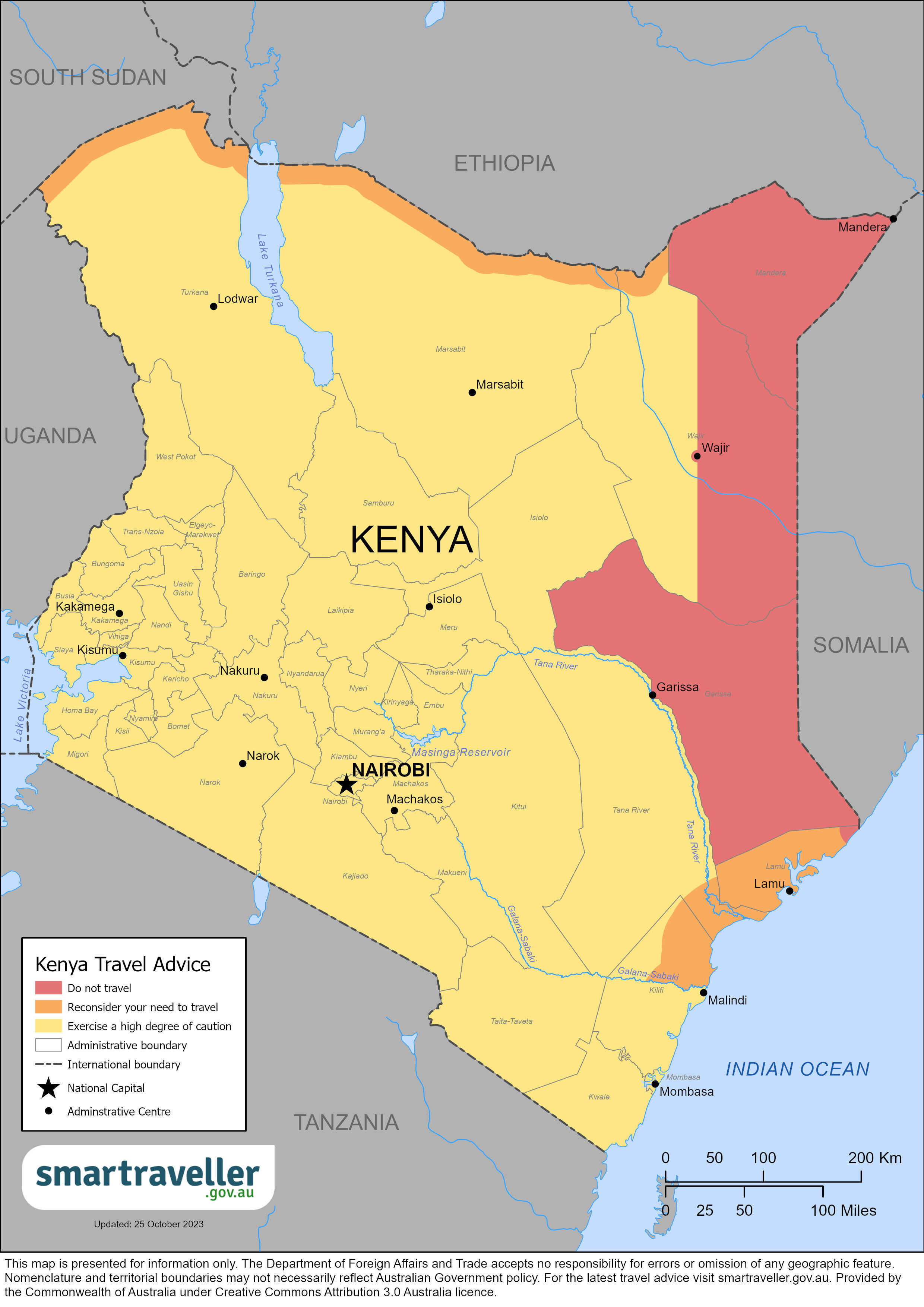
Kenya (PDF 885.66 KB)
Africa (PDF 1.68 MB)
Local emergency contacts
Fire and rescue services, medical emergencies.
Call 999 or go to the nearest hospital.
Call 999 or visit the nearest police station.
Advice levels
Exercise a high degree of caution in Kenya overall.
See Safety .
Do not travel to border regions with Somalia.
Do not travel to border regions with Somalia due to the high risk of terrorist attack and kidnapping, including all of Mandera and Garissa counties and the part of Wajir county extending from the town of Wajir eastwards to the border with Somalia.
Reconsider your need to travel to border regions with South Sudan and Ethiopia (except Mandera County where we continue to advise Do Not Travel), Lamu County and areas within Tana River and Kilifi Counties.
Reconsider your need to travel to South Sudan and Ethiopia (except Mandera County where we continue to advise Do Not Travel), Lamu County and areas within Tana River and Kilifi Counties, extending 50km inland in Tana River County, and 50km inland in Kilifi County north of the Galana-Sabaki River, due to the high risk of terrorist attack and kidnapping.
- Terrorist attacks are possible and could happen at any time, including in locations popular with foreigners and tourists. Be alert in public places. Avoid areas prone to attack. Religious and festive holidays have historically seen an upsurge in terrorist activities and heightened threat warnings. Remain vigilant if visiting public areas.
- The borders with Somalia, Ethiopia and South Sudan are high-risk areas. Armed groups from Somalia kidnap and target foreigners in Kenya, particularly along the Somalia border region. If despite our advice you plan to travel to these areas, get professional security advice.
- Violent crime occurs, including carjackings, kidnapping and home invasions. Don't walk around after dark. If you live in Kenya, invest in strong personal security measures.
- Protests can be expected across Kenya. Avoid protests and political gatherings. Follow the advice of local authorities.
- Scams are common. Criminals often use fake police, hotel or government identification to extort money from travellers. Be wary of anyone asking for money or information, even if they seem official.
- Kenya can experience natural disasters and severe weather. Know the warning signs and safety measures for earthquakes, floods and tsunamis.
Full travel advice: Safety
- Malaria is widespread, except in Nairobi and places higher than 2500 meters above sea level. Consider taking anti-malarial medication. Other insect-borne diseases including dengue, Rift Valley fever, filariasis and African sleeping sickness are common. Ensure your accommodation is insect-proof. Use insect repellent.
- Yellow Fever is widespread. Get Vaccinated before you travel and bring your vaccination certificate with you.
- HIV/AIDS infection rates are high. Take precautions if you're taking part in high-risk activities.
- You may be exposed to foodborne, waterborne and other infectious diseases include hepatitis, meningococcal disease, measles and cholera. Drink only boiled or bottled water. Avoid raw or undercooked food.
Full travel advice: Health
- It's illegal to work or volunteer without a valid work permit. To work in the charity sector, get a valid work permit through the Directorate of Immigration Services .
- Know and follow local laws. It's illegal to have same-sex relationships.
- It's illegal to take photos of official buildings, get advice before taking photos. It's also illegal to destroy the local currency, smoke outside designated areas, possess ivory, and use single-use plastic bags.
- Kenya recognises dual nationality but hasn't fully enacted laws around it. If you're a dual national, always travel on your Australian passport.
- Foreign journalists seeking to work in Kenya must apply for accreditation through the Media Council of Kenya portal .
Full travel advice: Local laws
- You now need to apply online for an electronic travel authorisation prior to travel. Entry and exit conditions can change at short notice. You should contact the nearest high commission/embassy or consulate of Kenya for the latest details.
- If you have a valid visa, you can continue to travel using this visa until its expiry.
- If you enter Kenya with flu-like symptoms, you may need to take a COVID-19 test at your own expense. If your test is positive, you may need to isolate. For more information on COVID-19 travel requirements, see Kenyan Civil Aviation Authority website.
- If you're a foreign resident, always carry your alien identity card. You could be fined or detained if you don't. Carry your yellow fever vaccination certificate. You may need to show it to enter and leave the country.
Full travel advice: Travel
Local contacts
- The Consular Services Charter details what the Australian Government can and can't do to help you overseas.
- For consular assistance, contact the Australian High Commission in Nairobi .
- To stay up to date with local information, follow the High Commission’s social media accounts.
Full travel advice: Local contacts
Full advice
There's an ongoing high threat of terrorist attacks in Kenya.
Terrorist group al-Shabaab continues to threaten attacks. Further attacks are possible and could happen at any time, including in areas popular with foreigners and tourists. Kenyan authorities remain on high alert.
Terrorist acts could include:
- suicide bombings and shootings
- kidnappings
- roadside bomb attacks and improvised explosive devices
- attacks on civil aviation
Possible attack targets
An attack could happen anywhere in Kenya. An attack is possible at any time.
Areas prone to terrorist attack include:
- Coastal areas, including all of Lamu County, and areas of Tana River and Kilifi Counties, extending 65km inland in Tana River county and 50km inland in Kilifi county north of the Galana-Sabaki River
- Kenya's border regions with Somalia, Ethiopia and South Sudan, including all of Mandera and Garissa counties and the part of Wajir county extending from the town of Wajir eastwards to the border with Somalia
Terrorists may target:
- foreign embassies, UN premises and international schools
- hotels, tourist resorts, beaches and safari lodges
- shopping areas, markets, bars, nightclubs, restaurants and cafes
- places of worship
- offices of non-government organisations (NGOs) and government buildings , including educational institutions
Terrorists may also target transport and transport infrastructure such as:
- airports and commercial airlines
- transport hubs and infrastructure
- sea vessels in or near Kenyan ports
Foreign aid workers may be targeted at refugee camps near the Kenya-Somalia border.
Terrorist attacks have occurred in Kenya in the past few years, including in Lamu, Mandera and Garissa counties.
Due to security concerns, Australian High Commission staff in Nairobi are on high alert.
Consider likely terrorist targets and the level of security provided.
Always be alert to possible threats, especially in public places.
Report any suspicious items or activities to police.
To reduce your risks:
- take official warnings seriously
- monitor the media for threats
- follow the instructions of local authorities.
If there's a terrorist attack:
- leave the affected area immediately if it's safe to do so
- avoid the area afterwards in case of more attacks
Don't gather in groups after an attack. This also applies if you're evacuated from a building for security reasons, such as a bomb threat.
Terrorism is a threat worldwide.
More information:
Kidnapping occurs across the world with political, ideological and criminal motives. Foreigners, including Australians, have been kidnapped while travelling overseas. Kidnapping can happen anywhere, anytime, including in destinations that are usually at lower risk.
Several active terrorist groups have the intent and capability to kidnap foreigners. Armed groups from Somalia have kidnapped aid workers in the Somalia border region. Foreigners and residents in coastal resorts and towns in the North Eastern region (Mandera, Wajir and Garissa counties), as well as Lamu county, have been the target of kidnapping.
Kidnapping is a high threat in these regions for:
- humanitarian workers
- journalists
If, despite our advice, you travel to an area with a high risk of kidnapping, our ability to provide consular assistance in these destinations will be limited.
To reduce the risk of kidnapping:
- always be alert to your personal security and surroundings
- get professional security advice for travel in locations with a heightened kidnap risk
- check your accommodation has appropriate security measures
- avoid isolated locations, particularly when travelling alone
- notify family or friends of planned travel and share your location
- avoid talking about your money or business affairs
- only use ATMs in public places and during daylight hours
- avoid giving personal details to strangers online or over the phone
The Australian Government's longstanding policy is that it doesn’t make payments or concessions to kidnappers.
Ransom payments to kidnappers have funded further terrorist attacks and criminal activity. Paying a ransom to terrorist groups will likely break Australian counter-terrorism financing laws.
Civil unrest and political tension
Public protests and events that draw large groups of people can turn violent.
Large demonstrations can happen in Kenya during and after international events or political changes.
Demonstrations resulting in violence and arrests have occurred because of:
- high food prices
- alleged corruption
- controversial media and tax law changes
Violent outbreaks are more common away from tourist areas. However, riots and clashes have happened in:
- other urban centres
During periods of unrest:
- be cautious throughout Kenya
- avoid large gatherings, protests and demonstrations
- monitor the media for reports about unrest
- avoid affected areas
- be aware authorities may order curfews in response to civil unrest at short notice
- follow instructions from local authorities.
Demonstrations and civil unrest
Crime is high in Kenya and increases during holiday periods.
Incidents of armed robbery , carjacking, kidnapping and muggings are possible in:
- Nairobi and other urban centres (e.g. Mombasa)
- some coastal regions, including all of Lamu County, and areas of Tana River and Kilifi Counties
- North Eastern region (Mandera, Wajir and Garissa counties)
- Some parts of North Rift and Central Rift regions (Turkana, West Pokot, Elgeyo Marakwet, Baringo, Laikipia and Samburu counties)
Petty crime
Thieves snatch jewellery and bags from open vehicle windows, most often while cars are stopped at traffic lights or in heavy traffic.
Groups of bag-snatchers and carjackers on motorbikes target pedestrians and motorists.
Robberies also occur on trains and buses.
To protect yourself from theft:
- always keep vehicle doors locked, windows up and valuables out of sight, even when moving
- secure your accommodation, even when you're in it
- avoid walking after dark
- avoid walking in isolated back-alleys and lanes.
Violent crime
Violent crimes include:
- armed carjackings
- home invasions
Foreigners have been targeted in private homes in Nairobi, tourist areas and while travelling by road. Several incidents have occurred at night outside residential security gates.
Violent crime is particularly common in the Nairobi suburbs of Eastleigh and Kibera. Take extra precautions in these areas.
If you're living in Kenya, invest in strong personal security measures. Regularly review your personal security arrangements.
Do not physically resist any robbery attempt.
Police regularly confront criminal suspects in public places. Random gunfire has killed or wounded bystanders in crowded areas.
Due to widespread HIV/AIDS, if you're a victim of violent crime such as rape , visit a doctor immediately.
Food and drink spiking
Some criminals target foreigners with food and drink spiking. Their motivations can be for assault, including sexual assault, and theft.
To protect yourself:
- never leave food or drinks unattended or in the care of strangers
- be wary of accepting snacks, beverages, gum or cigarettes from new acquaintances
- Partying safely
Crime in outlying areas
Incidents involving banditry and cattle rustling can occur in North and Central Rift regions (Turkana, West Pokot, Elgeyo Marakwet, Baringo, Laikipia and Samburu counties).
Clashes between local groups have occurred in the Mount Elgon region in western Uganda.
The region bordering Somalia is extremely dangerous.
Curfews and security operations can be instituted without prior notice in the North Rift and parts of Central Rift regions.
If you plan to travel to these areas get up-to-date advice on security and other conditions from your tour operator before you travel. Monitor the media for latest developments, maintain a high level of vigilance and leave restricted areas as soon as possible.
Scams and fraud
Scams are common. Criminals often use fake police, hotel, government and other identification to extort money from travellers.
- be wary of demands for money or personal information, including from people claiming to be police or officials. Always ask for and carefully check identification
- be wary of fake bank notes in circulation
Cyber security
You may be at risk of cyber-based threats during overseas travel to any country. Digital identity theft is a growing concern. Your devices and personal data can be compromised, especially if you’re connecting to Wi-Fi, using or connecting to shared or public computers, or to Bluetooth.
Social media can also be risky in destinations where there are social or political tensions, or laws that may seem unreasonable by Australian standards. Travellers have been arrested for things they have said on social media. Don't comment on local or political events on your social media.
- Cyber security when travelling overseas
National parks and game reserves
Crime occurs Kenya's national parks and conservation areas but rarely serious.
If you plan to visit national parks or game reserves:
- get local advice on security risks, park fees and other conditions before you travel
- get recommendations on travel firms and guides from the Kenya Association of Tour Operators (KATO)
- only use registered tour operators with a good reputation
- respect local wildlife laws and maintain a safe distance when observing wildlife
- follow all park regulations and instructions from local authorities and park wardens
Tours and adventure activities
Transport and tour operators don't always follow safety and maintenance standards. This includes adventure activities, such as diving.
If you plan to do an adventure activity :
- check if your travel insurance policy covers the activity
- use registered tour operators with a good reputation
- ask about and insist on minimum safety requirements
- always use available safety gear, such as life jackets or seatbelts.
If proper safety equipment isn't available, use another provider.
Information on tourism, road conditions and emergency regional assistance is available from the Kenya Tourism Federation Safety and Communication Centre . Phone: +254 (0)722 074 564 5 or +254 (0) 738 617 499
Climate and natural disasters
Kenya can experience natural disasters and severe weather , including:
- flash flooding
- earthquakes
- volcanic activity
If a natural disaster occurs:
- secure your passport in a safe, waterproof place
- monitor local media and other sources such as the Global Disaster Alert and Coordination System
- follow the advice of local authorities
- keep in contact with your friends and family.
Kenya traditionally has two rainy seasons, from March to June, and October to November. Flash flooding and mudslides are common. Roads may close. Expect delays when travelling in these areas.
Northern and eastern Kenya often experiences drought. Essential services in these areas may be affected during these times. Expect delays when travelling in these areas.
Earthquakes and volcanoes
Kenya lies on a fault line, and sometimes experiences earthquakes and tremors.
Volcanic activity and earthquakes can happen near Mt Elgon on the Kenya-Uganda border.
Get to know earthquake safety measures for each place you stay.
Tsunamis can occur in Kenya's coastal areas.
To receive tsunami alerts, register with the Global Disaster Alert and Co-ordination System .
Move to high ground right away if local or regional authorities tell you to, or if you:
- feel a strong earthquake that makes it hard to stand up
- feel a weak, rolling earthquake that lasts a minute or more
- see a sudden rise or fall in sea level
- hear loud and unusual noises from the sea
Don't wait for official warnings. Once on high ground, monitor local media.
Travel Insurance
Get comprehensive travel insurance before you leave. Your policy needs to cover all overseas medical costs, including medical evacuation. The Australian Government won't pay for these costs.
If you can't afford travel insurance, you can't afford to travel. This applies to everyone, no matter how healthy and fit you are.
If you're not insured, you may have to pay many thousands of dollars up-front for medical care.
- what activities and care your policy covers
- that your insurance covers you for the whole time you'll be away
Physical and mental health
Consider your physical and mental health before you travel, especially if you have an existing medical condition.
See your doctor or travel clinic to:
- have a basic health check-up
- ask if your travel plans may affect your health
- plan any vaccinations you need.
Do this at least 8 weeks before you leave.
If you have immediate concerns for your welfare, or the welfare of another Australian, call the 24-hour Consular Emergency Centre on +61 2 6261 3305 or contact your nearest Australian Embassy, High Commission or Consulate to discuss counselling hotlines and services available in your location.
- General health advice
- Healthy holiday tips (Healthdirect Australia)
Medications
Not all medication available over the counter or by prescription in Australia is available in other countries. Some may be considered illegal or a controlled substance, even if prescribed by an Australian doctor.
If you plan to bring medication, check if it's legal in Kenya. Take enough legal medicine for your trip.
Carry a copy of your prescription or a letter from your doctor stating:
- what the medication is
- your required dosage
- that it's for personal use
Health risks
Insect-borne diseases.
Yellow fever is widespread in Kenya. Yellow fever is a potentially fatal virus spread by mosquitoes. It's prevented by vaccination. Get vaccinated before you travel and take your yellow fever vaccination certificate with you to Kenya.
Malaria is widespread except in Nairobi and at altitudes above 2500m.
Other insect-borne diseases occur, such as:
- Dengue virus infection
- Rift Valley fever
- Lymphatic filariasis
- African sleeping sickness
To protect yourself from disease:
- make sure your accommodation is insect-proof
- use insect repellent
- wear long, loose, light-coloured clothing
- consider taking medication to prevent malaria
Visit a doctor if you develop either a fever, muscle pain, a rash or a bad headache.
HIV/AIDS infection rates are very high.
Take precautions if taking part in activities that put you at risk of infection.
Other health risks
Waterborne, foodborne and other infectious diseases are common. These include:
- meningococcal disease
- tuberculosis
Serious outbreaks occur from time to time.
To protect yourself from illness:
- drink boiled water or bottled water with sealed lids
- avoid ice cubes
- avoid raw and undercooked food, such as salads
- don't swim in fresh water
Get medical advice if you have a fever or diarrhoea.
Medical care
Medical facilities.
Medical facility standards vary. Medical facilities are adequate in urban areas but may be extremely limited in other places.
Before receiving treatment, public and private facilities need:
- an up-front payment, or
- a payment guarantee, or
- medical insurance confirmation
If you become seriously ill or injured in a remote area, you'll need to be evacuated to a major city. Medical evacuation can be very expensive.
There's a decompression chamber at the Kenyan Naval Base in Mombasa.
You're subject to all local laws and penalties, including those that may appear harsh by Australian standards. Research local laws before travelling.
If you're arrested or jailed, the Australian Government will do what it can to help you under our Consular Services Charter . But we can't get you out of trouble or out of jail.
Penalties for drug offences can be severe and include long jail terms.
Carrying or using drugs
Commercial surrogacy
Get legal advice in Australia and Kenya before going to Kenya for commercial surrogacy arrangements.
- Going overseas for international surrogacy
- Going overseas to adopt
LGBTI travellers
Kenyan law prohibits sexual acts between individuals of the same sex. Those convicted can face lengthy prison sentences.
Advice for LGBTI travellers
In Kenya it's illegal to:
- work or volunteer without a valid work permit
- destroy local currency
- smoke in public places outside designated smoking areas
- take photos of official buildings — get advice before taking photos
- possess ivory
- distribute religious material in public without a licence.
Australian laws
Some Australian criminal laws apply overseas. If you commit these offences, you may be prosecuted in Australia.
Staying within the law and respecting customs
Dual citizenship
Kenya recognises dual nationality. However, Kenya has not yet fully enacted dual nationality laws.
If you're a dual citizen, this limits the consular services we can give if you're arrested or detained.
Always travel on your Australian passport .
Dual nationals
Local customs
Kenya has conservative dress and behaviour standards, especially in coastal and rural areas. You should dress modestly; wear loose-fitting clothing that covers your shoulders, knees, midriff, chest and back. Take care not to offend.
The Islamic holiday month of Ramadan is observed in Kenya. Respect religious and cultural customs and laws at this time. Muslims don't eat, drink or smoke between sunrise and sunset during Ramadan. If you're not fasting, avoid these activities around people who are. Seek local advice to avoid offence.
Explore our Ramadan page to learn more, including dates for Ramadan.
Public displays of affection can lead to harassment, particularly for same-sex couples.
- Going overseas for major events
Visas and border measures
Every country or territory decides who can enter or leave through its borders. For specific information about the evidence you'll need to enter a foreign destination, check with the nearest embassy, consulate or immigration department of the destination you're entering.
Kenya became a visa-free country in January 2024. However, you'll need to apply online and pay for an Electronic Travel Authorisation (ETA) prior to arrival. Check the Kenya Ministry of immigration on categories of persons exempted from applying for the ETA.
If you already have a valid visa, you can continue to travel using this visa until its expiry.
For Kenyan visa and permit information, visit the ETA Kenya and Kenya Civil Aviation Authority websites.
Entry and exit requirements can change at short notice. Contact the Kenyan High Commission for details about ETAs, currency, customs and quarantine rules.
Border measures
If you enter Kenya with flu-like symptoms, you may need to take a COVID-19 test at your own expense. If your test is positive, you may need to isolate. For more information on COVID-19 travel requirements see: Kenyan Civil Aviation Authority .
Other formalities
Yellow fever vaccination.
You'll need a valid yellow fever vaccination certificate to enter Kenya. Some airlines may want to see one when you leave.
Find out about returning to Australia after exposure to yellow fever .
- Yellow fever - African Region (WHO)
- Kenyan Airports: Kenya Airports Authority
Import and export restrictions
Kenya has strict laws about importing or exporting certain goods, including:
- religious materials and antiquities
- business equipment
Kenyan High Commission in Australia
Identity card for foreigners
If you're a foreign resident, always carry your alien identity card. If you don't, you could be fined or jailed.
Working in Kenya
It's illegal to work without a valid visa. Authorities can fine or jail you for paid or voluntary work.
To work in the charity sector, get a valid work permit through the Charity Register.
Foreign journalists seeking to work in Kenya are required to apply for accreditation through the Media Council of Kenya portal .
Living or working overseas
To enter Kenya, your passport must have an expiry date at least 6 months after the date you arrive and at least two blank pages. This can apply even if you're just transiting or stopping over.
Some foreign governments and airlines apply the rule inconsistently. Travellers can receive conflicting advice from different sources.
You can end up stranded if your passport is not valid for more than 6 months.
The Australian Government does not set these rules. Check your passport's expiry date before you travel. If you're not sure it'll be valid for long enough, consider getting a new passport .
Lost or stolen passport
Your passport is a valuable document. It's attractive to people who may try to use your identity to commit crimes.
Some people may try to trick you into giving them your passport. Always keep it in a safe place.
If your passport is lost or stolen, tell the Australian Government as soon as possible:
- In Australia, contact the Australian Passport Information Service .
- If you're overseas, contact the nearest Australian embassy, high commission or consulate .
Passport with 'X' gender identifier
Although Australian passports comply with international standards for sex and gender, we can't guarantee that a passport showing 'X' in the sex field will be accepted for entry or transit by another country. Contact the nearest Kenyan High Commission before you arrive at the border to confirm if authorities will accept passports with 'X' gender markers.
More information:
- LGBTI travellers
The local currency is the Kenyan Shilling (KES).
- Kenya Shilling banknotes (Central Bank)
Declare all amounts over US$10,000 when you arrive and depart. This covers all forms of currency, not only cash.
Large banks and foreign exchange bureaus accept traveller's cheques. Hotels don't often accept them.
ATMs in Nairobi and major towns accept international credit cards.
Take care when paying with credit cards or using ATMs. Card skimming incidents are increasing. Only use ATMs at large shopping centres or in banks. Check the machine for unusual parts before you use it. Always keep your card in sight during transactions.
Ask your bank if your cards will work in Kenya.
Local travel
Driving permit.
To drive in Kenya, you'll need both:
- a valid Australian driver's licence
- an International Driving Permit (IDP)
Get your IDP before leaving Australia.
Road travel
Kenya records thousands of road fatalities each year. You're more likely to die in a motor vehicle accident in Kenya than in Australia.
Hazards include:
- poor road conditions
- unsafe and poorly maintained vehicles
- not enough street lighting
Before you drive:
- get to know local traffic laws and practices
- check local information on road conditions, including security risks and road closures
- avoid travel at night on major highways in and out of Nairobi and on rural roads
Driving or riding
Motorcycles
Check if your travel insurance policy covers you when using a motorbike or similar vehicle.
Always wear a helmet.
Only use established and reputable taxis and limousine services. Arrange these through your hotel.
Only use taxis from official taxi stands or via callout.
When travelling at night to and from Nairobi's airports (JKIA and Wilson), always use a tour or taxi company with a good reputation.
Public transport
Public transport options such as buses and minivans ('matatus') are dangerous.
Bus terminals and other transport hubs have been targeted in terrorist and criminal attacks. There are risks of further attacks.
Theft is common on many train routes. Passengers' belongings have been taken from their compartments. Watch your belongings at all times.
Boat travel
If you travel in Kenyan waters:
- first check the International Maritime Bureau's piracy reports
- arrange personal security measures
- be alert to threats
DFAT doesn't provide information on the safety of individual commercial airlines or flight paths.
Check Kenya's air safety profile with the Aviation Safety Network.
Emergencies
Depending on what you need, contact your:
- family and friends
- travel agent
- insurance provider
Always get a police report when you report a crime.
Your insurer should have a 24-hour emergency number.
Consular contacts
Check the Consular Services Charter to find out what the Australian Government can and can't do to help you overseas.
For consular assistance, contact the Australian High Commission in Nairobi.
Australian High Commission, Nairobi
Limuru Road, Rosslyn Nairobi, Kenya
Phone: (+254) 20 4277 100
Website: kenya.highcommission.gov.au Facebook: Australia in East Africa X: @AusHCKenya
Check the High Commission website for details about opening hours and any temporary closures.
24-hour Consular Emergency Centre
In a consular emergency, if you can't contact an embassy, call the 24-hour Consular Emergency Centre on:
- +61 2 6261 3305 from overseas
- 1300 555 135 in Australia

Travelling to Kenya?
Sign up to get the latest travel advice updates..
Be the first to know official government advice when travelling.
You are using an outdated browser. Upgrade your browser today or install Google Chrome Frame to better experience this site.
Think Travel Vaccine Guide
As a health care provider, be sure to prepare your globe-trotting patients for travel by providing a quick pretravel risk assessment, consultation, and care. THINK TRAVEL:
- Ask your patients if they plan on any international travel .
- Make sure they are up- to- date on all routine vaccines before their trip.
- Hepatitis A
- Hepatitis B
- Yellow fever
- Japanese encephalitis
- Meningococcal diseases
For destination-specific vaccine recommendations, search CDC’s Destination pages.
Think about...
*Travelers may also need routine (non-travel) vaccines or boosters before travel including influenza; measles, mumps, and rubella (MMR); tetanus (Td or Tdap); varicella; pneumococcus; and polio. Check CDC’s Destination Pages for country-specific vaccine recommendations.
File Formats Help:
- Adobe PDF file
- Microsoft PowerPoint file
- Microsoft Word file
- Microsoft Excel file
- Audio/Video file
- Apple Quicktime file
- RealPlayer file
- Zip Archive file
Exit Notification / Disclaimer Policy
- The Centers for Disease Control and Prevention (CDC) cannot attest to the accuracy of a non-federal website.
- Linking to a non-federal website does not constitute an endorsement by CDC or any of its employees of the sponsors or the information and products presented on the website.
- You will be subject to the destination website's privacy policy when you follow the link.
- CDC is not responsible for Section 508 compliance (accessibility) on other federal or private website.
Travel Vaccines and Advice for Kenya

Kenya is an amazing country to experience wildlife and to take in a gorgeous and diverse landscape. You can find everything from equatorial glaciers to tall mountains to extensive plains.
Many who visit Kenya opt to go on a safari, where they catch glimpses of animals like rhinos, elephants and lions. Hikers will find adventure with Mount Kenya, an impressive peak which offers both day hikes and more ambitious excursions.
Kenya has beautiful beaches that are welcoming to travellers looking for relaxation or to participate in watersports, including diving and snorkeling.
Culturally, Kenya also boasts impressive diversity, with more than 40 different ethnic groups with their own unique traditions.
Do I Need Vaccines for Kenya?
Yes, some vaccines are recommended or required for Kenya. The PHAC and WHO recommend the following vaccinations for Kenya: hepatitis A , hepatitis B , typhoid , cholera , yellow fever , rabies , meningitis , polio , measles, mumps and rubella (MMR) , Tdap (tetanus, diphtheria and pertussis) , chickenpox , shingles , pneumonia and influenza .
See the bullets below to learn more about some of these key immunizations:
- Hepatitis A – Food & Water – Recommended for most travellers
- Hepatitis B – Blood & Body Fluids – Recommended for travellers to most regions.
- Typhoid – Food & Water – Recommended for travellers to most regions.
- Cholera – Food & Water – Cases have been reported in multiple regions throughout 2018 and 2019. Vaccination recommended for long-term, humanitarian and healthcare travellers.
- Yellow Fever – Mosquito – Required if travelling from a region with yellow fever. Recommended for all travellers over 9 months of age, except if travelling to: North Eastern and Coast Province; Kilifi, Kwale, Lamu and Malindi states; and the cities of Mombasa and Nairobi
- Rabies – Saliva of Infected Animals – High risk country. Vaccine recommended for long-term travellers and those who may come in contact with animals.
- Meningitis – Airborne & Direct Contact – Located in the meningitis belt, vaccination is recommended during the dry season (Dec. – June)
- Measles Mumps Rubella (MMR) – Various Vectors – Given to anyone unvaccinated and/or born after 1957. One time adult booster recommended.
- TDAP (Tetanus, Diphtheria & Pertussis) – Wounds & Airborne – Only one adult booster of pertussis required.
- Chickenpox – Direct Contact & Airborne – Given to those unvaccinated that did not have chickenpox.
- Shingles – Direct Contact – Vaccine can still be given if you have had shingles.
- Pneumonia – Airborne – Two vaccines given seperately. All 65+ or immunocompromised should receive both.
- Influenza – Airborne – Vaccine components change annually.
- Polio – Food & Water – Recommended for some travellers to the region. Single adult booster recommended.
See the tables below for more information:
The risk of contracting malaria for is considered moderate by the PHAC. Travellers should consult a travel medicine specialist to determine the best antimalarial for their trip. Dengue and chikungunya are also present in the country. Be sure to bring and use mosquito repellents and netting.
Travellers should also discuss the risk of contacting yellow fever while in Kenya. Vaccination is available at Passport Health locations throughout the country.
Meningitis poses a risk to travellers to Kenya. Be sure you are vaccinated before leaving for your trip.
Visit our vaccinations page to learn more. Travel safely with Passport Health and schedule your appointment today by calling or book online now .
Customer Reviews
Passport health – travel vaccines for kenya, do i need a visa or passport for kenya.
Canadian citizens with a valid passport need a visa for both tourist and business purposes. This visa can either be a real, paper copy which gets glued into the passport or can be an e-visa which you apply for yourself at home, directly. All fees are able to be paid directly online and you will receive the visa by email.
Sources: Embassy of Kenya and Canadian Travel and Tourism
Visit the Canadian Travel and Tourism website for more information on entry and exit requirements.
What is the Climate Like in Kenya?
Kenya has a tropical climate, but weather and temperature will vary by region. In Nairobi, the average high temperature is typically in the 20s, with lows in the teens. Temperatures stay relatively consistent in Kenya throughout the year.
- Wet Season – November to May. The heaviest rain usually lasts from March through May, and this entire season features high humidity. Daytime temperatures are often in the high-20s.
- Dry Season – June to October. Kenya’s dry season is its coldest season. Lows are usually in the 10’s. Higher altitudes will experience colder temperatures.
How Safe is Kenya?
The multiple governments have issued travel warnings affecting travel to the border area between Somalia and Kenya due to threats by the terrorist group al-Shabaab. There is a risk of crime and terrorism throughout the country.
Travellers are advised to avoid large gatherings, as they are also prime sites for incidences of crime and terrorism.
Hundreds of people have died in terrorist attacks in Kenya since 2011. The State Department recommends travellers avoid travel to the following regions:
- Northeastern Kenya – Mandera, Wajir, Garissa
- Coastal Areas – Tana River, Lamu, Kilifi
- Nairobi – Eastleigh
Home invasions, burglaries, armed carjackings, muggings and kidnappings have turned violent or fatal. Travellers should be aware they can happen at any time. Matatus, privately-operated buses, are often targeted.
Forced marriages occur and sexual assaults are prevalent. Scams are also frequent in Kenya.
All travellers should be aware of the risks, particularly from terrorists.
Kenya’s Rules
In Kenya, penalties for drug possession, trafficking, and use are severe. There are also strict rules about the sale and consumption of alcohol and cigarettes. Penalties for public intoxication are severe. Smoking is only permitted in public in designated areas.
Travellers who wish to import a firearm must obtain a permit.
Consensual same-sex sexual activity is criminalized in Kenya. LGBT travellers may face harassment and discrimination.
Customs regulations for importing or exporting religious materials, antiquities, currency, wildlife products and other items are strict. Travellers wishing to import or export special items should review these policies.
Under the Kenya Wildlife Service, all tour and safari operators must carry insurance. Travellers should confirm any tour company they plan to use has insurance and should check the safety record of a company and observe all local or park regulations. Travellers should review banned wildlife items under Kenya’s Wildlife Act.
What Should I Pack for Kenya?
Here are some essential items to consider for your trip to Kenya:
- Insect repellent and sunscreen.
- Travellers may experience diarrhea from water or food they are not used to. Bring diarrhea medicine or a traveller’s diarrhea kit.
- Light clothing for hot temperatures, with warmer options for cool nights.
- Umbrella or rain gear if you plan to travel during rainy season.
Canadian Embassy to Kenya
The High Commission of Canada in Kenya is able to provide consular services to citizens travelling to Kenya, Uganda, Rwanda, Burundi, South Sudan, and Somalia.
Canadian Embassy Nairobi High Commission of Canada Limuru Road, Gigiri Phone: (254-20) 366 3000
Stay safe abroad with Passport Health. Call or book online now and start travelling safely today!
On This Page: Do I Need Vaccines for Kenya? Do I Need a Visa or Passport for Kenya? What is the Climate Like in Kenya? How Safe is Kenya? Kenya’s Rules What Should I Pack To Kenya? Canadian Embassy to Kenya

- PIPEDA Policy and Consent Form
- Privacy Policy
- Automatic Data Collection Statement
Moderna pauses Kenya plant plans as COVID vaccine demand wanes
- Medium Text

- Company Moderna Inc Follow
Keep up with the latest medical breakthroughs and healthcare trends with the Reuters Health Rounds newsletter. Sign up here.
Reporting by Leroy Leo in Bengaluru; Editing by Shailesh Kuber and Sriraj Kalluvila
Our Standards: The Thomson Reuters Trust Principles. New Tab , opens new tab
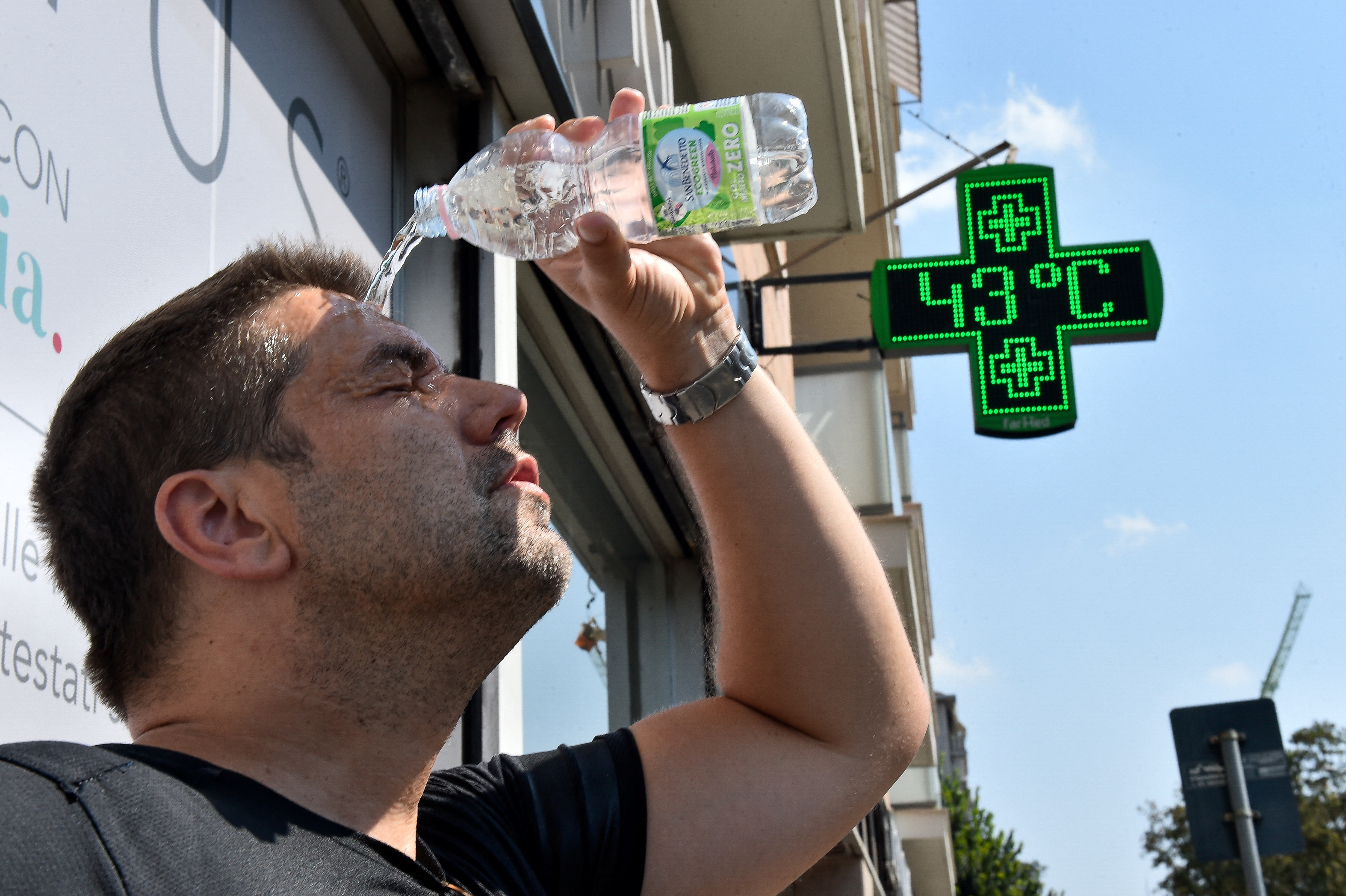
Business Chevron
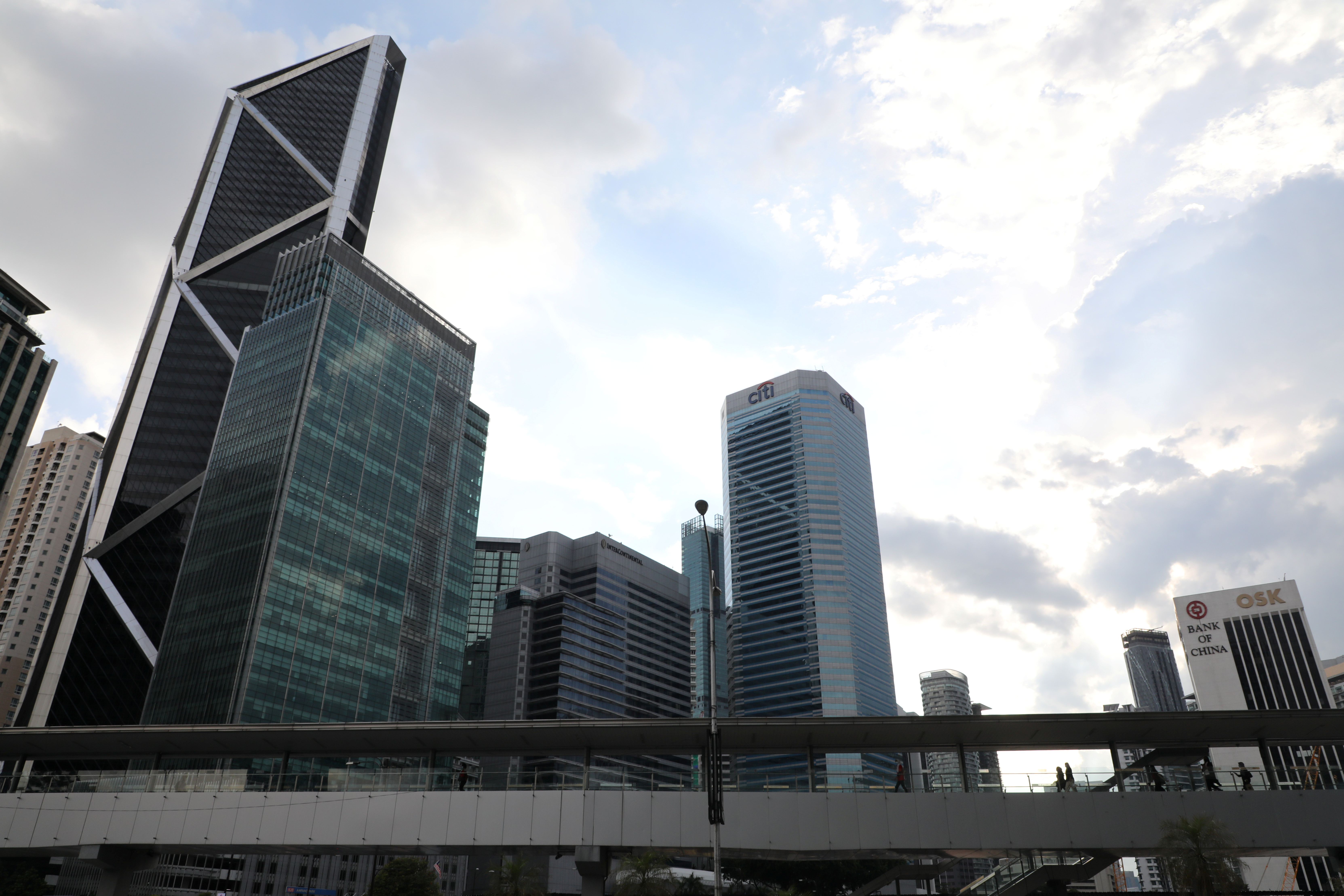
Malaysia to offer incentives to attract global tech companies
Malaysia will offer incentives including exemptions and subsidies on rents and employment passes as well as concessionary tax rates on corporate profits to attract global tech companies, its economy minister said on Monday.


IMAGES
COMMENTS
Be aware of current health issues in Kenya. Learn how to protect yourself. Level 2 Practice Enhanced Precautions. Global Polio January 05, 2024 Some international destinations have circulating poliovirus. Before any international travel, make sure you are up to date on your polio vaccines.
Advice. Travelers'. Diarrhea Kits. Available. Kenya is an amazing country to experience wildlife and to take in a gorgeous and diverse landscape. You can find everything from equatorial glaciers to tall mountains to extensive plains. Many who visit Kenya opt to go on a safari, where they catch glimpses of animals like rhinos, elephants and lions.
Kenya's Ministry of Health announced all passengers age 18 and over arriving in Kenya will need to present a valid certificate of COVID-19 vaccination effective immediately. All passengers exiting Kenya will also need to present a valid certificate of COVID-19 vaccination, as well as meet the existing requirements under the Trusted Traveler ...
Health requirements for arriving travellers. Yellow fever vaccination certificate. Yellow fever requirements. All travelers arriving in Kenya from countries where yellow fever is endemic should present a valid yellow fever certificate. Yellow Fever Vaccination exemptions. Infants aged less than 9 months, except during an epidemic when infants ...
Kenya, located on the east coast of Africa, offers once-in-a-lifetime opportunities like taking a safari, witnessing the Serengeti Migration and lying along the beaches of the Swahili Coast. Talk to the experts at the UH Roe Green Center for Travel Medicine & Global Health to make sure you have the required vaccinations for travel before you leave for your trip.
More. Learn about CDC's Traveler Genomic Surveillance Program that detects new COVID-19 variants entering the country. Sign up to get travel notices, clinical updates, & healthy travel tips. CDC Travelers' Health Branch provides updated travel information, notices, and vaccine requirements to inform international travelers and provide ...
Health insurance card (your regular plan and/or supplemental travel health insurance plan) and copies of claim forms; Proof of yellow fever vaccination If required for your trip, take your completed International Certificate of Vaccination or Prophylaxis card or medical waiver; Copies of all prescriptions Make sure prescriptions include generic ...
Vaccinations and health risks. At least 8 weeks before your trip check: the latest information on vaccinations and health risks in TravelHealthPro's Kenya guide. where to get vaccines and ...
All visitors are required to obtain an electronic travel authorization before entering Kenya.. Required for Entry: Passport with at least two blank pages, six months' validity, and a Kenyan electronic travel authorization.; You should have proof of yellow fever immunizations if arriving from an endemic country, or you may be denied entry.; Obtain the latest information on visas, as well as ...
Safari Travel Planner. Safari Enquiry. A yellow fever vaccination and certificate is not mandatory for those entering Kenya from Europe or North America. You may be asked for one if you enter arrive from elsewhere in the yellow fever belt of Africa or South America. It's important to be up-to-date on tetanus, polio and diphtheria, and you ...
Proof of a COVID-19 vaccination and a negative PCR test is no longer required to enter Kenya. However, travelers exhibiting flu-like symptoms will be required to take a PCR test and fill out a passenger locator form. 2. Pack smart for Kenya - it's not always hot. Early morning safaris can be chilly, so it's wise to take layers for a trip ...
Advice. Travellers'. Diarrhea Kits. Available. Kenya is an amazing country to experience wildlife and to take in a gorgeous and diverse landscape. You can find everything from equatorial glaciers to tall mountains to extensive plains. Many who visit Kenya opt to go on a safari, where they catch glimpses of animals like rhinos, elephants and ...
COVID-19 vaccines are now being offered to those ages 15 and up in Kenya. U.S. citizens who reside in Kenya can also access vaccines if they bring their passport. The vaccines are being offered on a first come, first served basis, with no booking required. Note that supplies are limited and vary based on location.
More information about Kenyan work permits - High commission of Kenya. Children and travel. Learn more about travelling with children. Yellow fever. Learn about potential entry requirements related to yellow fever (vaccines section). The Kenyan authorities regularly carry out spot checks for proof of yellow fever vaccinations.
Many yellow fever vaccine centers also provide other pre-travel health care services. Find an authorized US yellow fever vaccine center. Examples of Vaccines. Here is a list of possible vaccines that you may need to get for the first time or boosters before you travel. COVID-19; Chickenpox; Cholera ; Flu (Influenza) Hepatitis A ; Hepatitis B ...
Kenya Current travel vaccine advice and how to prevent infections when travelling to Kenya. The recommendations and advice on this page can never replace a medical consultation. To get the best effect from the vaccines, you should begin vaccination well before departure. ... The service of current travel vaccine advice and how to prevent ...
Exactly the travel vaccinations you need - no more, no less. During your consultation, our nurse or pharmacist will talk you through the health risks at your travel destinations to check which vaccines you need. ... Malaria is a health risk in certain parts of Kenya.There is a very low risk of malaria in Nairobi, the areas immediately around ...
Read the entire Travel Advisory. Do Not Travel to: Kenya-Somalia border counties and some coastal areas, due to terrorism and kidnapping. Areas of Turkana County, due to crime. Reconsider Travel to: Nairobi neighborhoods of Eastleigh and Kibera, due to crime and kidnapping. Certain areas of Laikipia County, due to criminal incursions and ...
Event: Kenya's Ministry of Health announced all fully vaccinated passengers arriving in Kenya will be exempted from COVID-19 PCR testing. Unvaccinated travelers over the age of 5 years must have a negative COVID-19 PCR test 72 hours before departure. They will also be required to take a rapid antigen test at their own cost ($30) upon arrival.
The current guidance is that travellers to Kenya should get vaccinated against the following diseases: Diphtheria. Hepatitis A. Polio. Tetanus. Typhoid. However vaccination information changes all the time, for up to date recommendations for your trip visit Travel Health Pro and NHS site, Fit for Travel.
Yellow fever is a potentially fatal virus spread by mosquitoes. It's prevented by vaccination. Get vaccinated before you travel and take your yellow fever vaccination certificate with you to Kenya. Malaria is widespread except in Nairobi and at altitudes above 2500m. Other insect-borne diseases occur, such as: Dengue virus infection; Rift ...
Vaccination (2-dose vaccine): Recommended for most travelers. --Administer 2 doses, at least 6 months apart. --At least 1 dose should be given before travel. Consultation: Advise patient to wash hands frequently and avoid unsafe food and water. Hepatitis B. Sexual contact, contaminated needles, & blood products, vertical transmission.
Travel Vaccines and Advice for Kenya. Kenya is an amazing country to experience wildlife and to take in a gorgeous and diverse landscape. You can find everything from equatorial glaciers to tall mountains to extensive plains. Many who visit Kenya opt to go on a safari, where they catch glimpses of animals like rhinos, elephants and lions.
, opens new tab said on Thursday it had paused its plans to build a vaccine manufacturing facility in Kenya, following a post-pandemic decline in demand for COVID-19 vaccines. The move is in line ...
In March 2022, Kenya signed a memorandum of understanding with the Boston-based company to produce up to 500 million vaccine doses a year, with a focus on API manufacturing. Read: Moderna to build ...